USC Catalogue 2023-2024 [ARCHIVED CATALOGUE]
| | | | Application deadline: December 1 The program provides dual emphasis in literature and creative writing, culminating in the dissertation, which combines critical analysis with creative originality. Roughly half of the dissertation is based on original research, that is to say, research contributing to knowledge which enriches or changes the field. Doctoral candidates not only read and write texts as finished products of scholarship in researching their creative work’s literary and historical milieu, but also consider the text as writers create it, then compose texts as writers, a process that goes to the source of the study of literature and of literature itself. This integration of literature and creative writing is reflected in the structure of the dissertation, which introduces the creative work within a context of critical inquiry, bringing together the examination and embodiment of the literary act, a new model of scholarship and creative innovation. PhD candidates in literature and creative writing must pass the same departmental screening examination taken by PhD candidates in Literature who are not working in the area of creative writing. The exam tests students in various areas of emphasis (British literature, American literature, poetry, prose, etc.) and literature and historical periods as a measure of their preparedness to undertake independent research. The literature and creative writing student takes 64 units in all, 32 in literature, 24 in creative writing workshops and seminars and 8 units of dissertation studies credits. Admission RequirementsRequirements for admission to study in the department of English include: scores satisfactory to the department in both the verbal and quantitative General Test and the literature Subject Test of the Graduate Record Examinations; evidence of experience and ability in creative writing, as demonstrated by a creative writing sample; evidence of competence in writing English and interpreting English literature, as demonstrated by a sample of written work by the applicant on literary subjects; a satisfactory written statement by the applicant of aims and interests in graduate work; letters of recommendation from at least three college instructors; and grades satisfactory to the department earned by the applicant at other institutions. This program will accept applicants with BA degrees or transfer students with an MA or MFA in creative writing. Degree RequirementsThese degrees are under the jurisdiction of the Graduate School. Refer to the Graduate School section of this catalogue for general regulations. All courses applied toward the degrees must be courses accepted by the Graduate School. Graduate Curriculum and Unit RequirementsThe graduate curriculum is divided into 500-level foundation courses and 600-level advanced courses. The 500-level courses offer fundamental work in theory and in the history of British and American literatures and cultures. The 600-level courses feature advanced studies in theory, creative writing seminars and workshops and special topics. Although students will normally take 500-level courses leading up to the screening procedure (see Screening Procedure) and 600-level courses thereafter, students after consultation with their advisers may be permitted to take 600-level courses in the first semester of their graduate training. The student’s course work must total at least 64 units. No more than eight units of 794 Doctoral Dissertation and no more than four units of 790 Research may count toward the 64 units. A maximum of 12 transfer units, approved by the graduate director, is allowed toward the 64 units minimum required by the PhD (See Transfer of Course Work .) The student will be assigned a faculty mentor in his or her first semester in the graduate program and will be encouraged in subsequent semesters to begin putting together an informal qualifying exam committee. The makeup of the qualifying exam committee may change as the interests of the student change. The faculty mentor and informal qualifying exam committee will assist the student in planning a program of study appropriate to the student’s interests leading to the screening procedure. Screening ProcedureAt the end of the student’s fourth semester (second semester for students who enter with an MA or MFA degree or near equivalent), the student will sit for a departmental examination, which is part of a comprehensive screening procedure. Rarely, and only with the approval of the graduate director and the graduate committee, will a student be allowed to postpone the departmental examination and the screening procedure, and then only for one year. Prior to the screening procedure, the student will be allowed to take a maximum of four units of independent study ( ENGL 590 ), and that independent study will normally be used to prepare for the departmental examination; all other units must be in the 500- or 600-level seminar. Qualifying Exam CommitteeImmediately following successful completion of the screening procedure, the student will nominate formally a five-member qualifying exam committee, including a chair and three other members from the English Department who are in the student’s areas of interest and an outside member from another PhD-granting department. The committee must be in place and approved by the Graduate School at the time the student chooses a dissertation topic, writes the dissertation prospectus and schedules a qualifying examination. Qualifying ExaminationFollowing completion of course work, the student must sit for a qualifying examination, at a time mutually agreed upon by the student and the qualifying exam committee. This is a field examination given in the subject of the student’s proposed dissertation research. No less than one month before the qualifying examination, the student will submit to the qualifying exam committee a dissertation prospectus. The prospectus, it is understood, will not be a polished dissertation proposal, but at a minimum it should display a strong knowledge of the subject, much of the relevant secondary material and other contexts crucial to the writing of the dissertation, and should present a workable plan of attack as well as a reasonably sophisticated understanding of the theoretical assumptions involved in the subject. The qualifying examination will consist of both written and oral portions with special emphasis areas in creative writing. It will focus on the dissertation area and its contexts with the specific format and content of the examination being negotiated among the student and all members of the examination committee. Upon successful completion of the qualifying examination the student proceeds to the writing of the doctoral dissertation. DissertationThe final stage of the program is the submission of a creative dissertation that makes an original, substantial and publishable contribution to creative literature: a book of poems, a novel, a collection of short stories. Foreign LanguagePhD students are required to demonstrate proficiency in at least one foreign language. This may be demonstrated by completing a course in the literature of that language at the 400 or 500 level (with a grade of B [3.0] or better) or by passing a foreign language exam that tests proficiency in reading comprehension and translation. PhD students may also be required to demonstrate proficiency in additional languages, as determined by the qualifying exam committee in view of the student’s proposed field of research. King's College LondonCreative writing research phd. 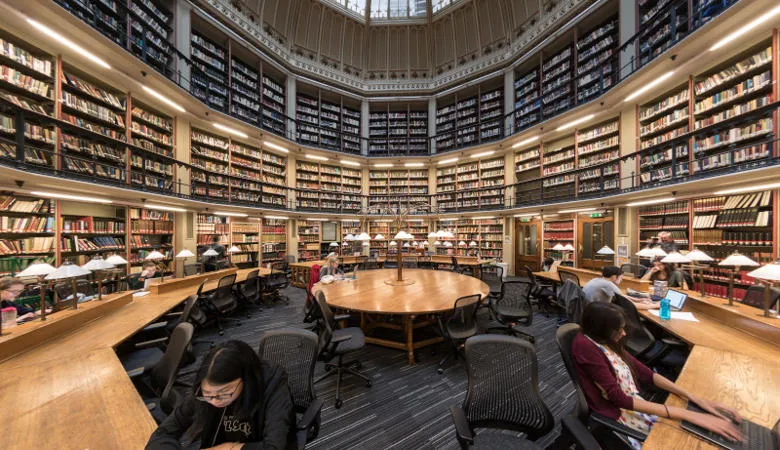 Key informationThe PhD in Creative Writing at King’s is a practice-led course, incorporating taught elements and aspects of professional development. It is designed to cater for talented, committed writers who are looking to complete a book-length creative work for publication and sustain a long-term career in writing. Key BenefitsOur unique programme offers students: - a varied, structured framework for the development of their creative work, with regular feedback from experienced author-lecturers in the department through supervision and workshops
- purposeful engagement with professionals from the publishing and performance industries throughout the course, building potential routes to publication
- valuable teaching experience in creative writing at HE-level through our Graduate Teaching Assistantship scheme
- practical experience in public engagement, through curating and chairing public literary events at King’s
- a community of fellow writers and collaborative projects
English DepartmentWe have over 100 doctoral students from all over the world working on a wide range of projects. Together with our community of postdoctoral fellows, our early career researchers both organise and participate in our thriving seminar and conference culture. The English department is home to award-winning novelists, poets, essayists, biographers, non-fiction authors, and literary critics, who supervise creative projects at doctoral level within their specialisms. Works by our staff have won or been shortlisted for a number of literary accolades, including: the T.S. Eliot Prize, the Forward Prize, the Man Booker Prize, the Sunday Times Young Writer of the Year, the Costa First Novel Award, the Costa Poetry Award, the Somerset Maugham Award, the Commonwealth Book Prize, the Biographers’ Club / Slightly Foxed First Biography Prize, the U.S. National Book Critics Circle Award, the CWA Gold Dagger Award, the European Union Prize for Literature, the RSL Encore Award, the Los Angeles Times Book Award, the E.M. Forster Award from the American Academy of Letters, le Prix du Roman Fnac, le Prix du Roman Etranger, the Kiriyama Prize, the Republic of Consciousness Prize, the Royal Society of Literature’s Encore Award, and the OCM Bocas Prize for Caribbean Literature. Many of the creative writing staff are Fellows of the Royal Society of Literature. Their most recent publications are: Benjamin Wood The Young Accomplice (Penguin Viking, 2022) – fiction A Station on the Path to Somewhere Better (Scribner, 2018) – fiction Edmund Gordon The Invention of Angela Carter (Chatto & Windus, 2016) – creative non-fiction Loop of Jade (Chatto & Windus, 2015) – poetry Anthony Joseph Sonnets for Albert (Bloomsbury Publishing, 2022) – poetry The Frequency of Magic (Peepal Tree Press, 2019) – fiction Lara Feigel The Group (John Murray Press, 2020) – fiction Free Woman: Life, Liberation and Doris Lessing (Bloomsbury, 2018) – creative non-fiction Homing: On Pigeons, Dwellings, and Why We Return (John Murray Press, 2019) – creative non-fiction Daughters of the Labyrinth (Corsair, 2021) – fiction Beethoven Variations: Poems on a Life (Chatto & Windus, 2020) – poetry Emerald (Chatto & Windus, 2018) – poetry Andrew O'Hagan Mayflies (Faber & Faber, 2020) – fiction The Secret Life: Three True Stories (Faber & Faber, 2017) – creative non-fiction *may vary according to research leave and availability. King's AlumniThe list of King’s alumni not only features many acclaimed contemporary authors—Michael Morpurgo, Alain de Botton, Hanif Kureishi, Marina Lewycka, Susan Hill, Lawrence Norfolk, Ross Raisin, Alexander Masters, Anita Brookner, and Helen Cresswell—it also includes major figures in literature, such as Maureen Duffy, Arthur C Clarke, Thomas Hardy, Christopher Isherwood, BS Johnson, John Keats, W. Somerset Maugham, and Virginia Woolf. Course DetailOur postgraduate writing students are given a supportive environment in which to enhance their technique, to explore the depths of their ideas, to sustain their creative motivation, and to prepare them for the demands of the writer’s life beyond the College. At King's we know that writing well requires self-discipline and an ability to work productively in isolation; but we also appreciate that postgraduate writers thrive when they are part of a community of fellow authors, an environment of constructive criticism and shared endeavour. That is why we offer our PhD students the guidance of knowledgeable and experienced practitioners. They will have frequent opportunities to interact and collaborate with peers and forge lasting connections within London’s writing industry. Students will be expected to attend the quarterly Thesis Workshop, and also to take an active part in curating literary events at King’s, including the Poetry And… quarterly reading series. They will be invited to apply for positions teaching undergraduate creative writing modules as part of the Department’s Graduate Teaching Assistantship (GTA) scheme. After three years (full-time) or six years (part-time), students are expected to submit either: - a novel or short story collection
- a poetry collection
- a full-length work of creative non-fiction
In addition, they are also required to submit an essay (up to 15,000 words) that examines their practical approach to the conception, development, and revision of their project, and which explores how their creative work was informed by research (archival, book-based, or experiential). - How to apply
- Fees or Funding
Many of our incoming students apply for AHRC funding via the London Arts and Humanities Partnership. Please see their website ( www.lahp.ac.uk ) for more detail of deadlines, application procedure and awards available. Also the ‘Student Funding’ section of the Prospectus will give you more information on other scholarships available from King’s. UK Tuition Fees 2023/24 Full time tuition fees: £5,820 per year (MPhil/PhD, Creative Writing) Part time tuition fees: £2,910 per year (MPhil/PhD, Creative Writing) International Tuition Fees 2023/24 £22,900 per year (MPhil/PhD, Creative Writing) £11,450 per year (MPhil/PhD, Creative Writing) UK Tuition Fees 2024/25 £6,168 per year (MPhil/PhD, Creative Writing) £3,084 per year (MPhil/PhD, Creative Writing) International Tuition Fees 2024/25 £24,786 per year (MPhil/PhD, Creative Writing) £12,393 per year (MPhil/PhD, Creative Writing) These tuition fees may be subject to additional increases in subsequent years of study, in line with King’s terms and conditions. Base campus Strand CampusLocated on the north bank of the River Thames, the Strand Campus houses King's College London's arts and sciences faculties. PhD in Creative Writing students are taught through one-to-one sessions with an appointed supervisor in their chosen specialism (fiction, creative non-fiction, or poetry) as well as through quarterly thesis workshops. They are also appointed a second supervisor whose role is to offer an additional perspective on the work being produced. We place great emphasis on pastoral care and are a friendly and welcoming department in the heart of London. Our home in the Virginia Woolf Building offers many spaces for postgraduate students to work and socialise. Studying in London means students have access to a huge range of libraries from the Maughan Library at King’s to the Senate House Library at the University of London and the British Library. Our PhD Creative Writing students are taught exclusively by practicing, published writers of international reputation. These include: Benjamin Wood (Senior Lecturer in Creative Writing) Supervises projects in fiction. Edmund Gordon (Senior Lecturer in Creative Writing) Supervises projects in fiction and creative non-fiction. Sarah Howe (Lecturer in Poetry) Supervises projects in poetry. Anthony Joseph (Lecturer in Creative Writing) Supervises projects in poetry and fiction. Jon Day (Senior Lecturer in English) Supervises projects in creative non-fiction and fiction Lara Feigel (Professor of Modern Literature) Supervises projects in creative non-fiction and fiction. Ruth Padel (Professor Emerita of Poetry) Andrew O’Hagan (Visiting Professor) *Teaching staff may vary according to research leave and availability. Our programme also incorporates the following taught components: Thesis Workshop A termly writing seminar for the discussion and appraisal of works-in-progress. These are taught on a rotational basis by all members of the creative writing staff, so that students get the benefit of hearing a range of voices and opinions on their work throughout the course. The Writing Life A suite of exclusive guest talks and masterclasses from leading authors, publishers, and editors, in which students receive guidance from people working at the top level of the writing industry and learn about the various demands of maintaining a career as a writer. Recent speakers have included Amit Chaudhuri, Chris Power, Rebecca Watson, Mendez, Frances Leviston, Joanna Biggs, Joe Dunthorne, Francesca Wade, Kishani Widyaratna, Jacques Testard and Leo Robson. Other elements of professional development are included in the degree: Agents-in-Residence Candidates in fiction or creative-nonfiction will meet and discuss their work in one-to-one sessions with invited literary agents, who are appointed to yearly residencies. These sessions offer writers a different overview of the development of their project: not solely from the standpoint of authorial technique, but with a view towards the positioning of their writing within a competitive and selective industry. Poetry candidates will meet and discuss their work with invited editors from internationally recognised poetry journals and presses. Undergraduate Teaching Through our Graduate Teaching Assistant (GTA) training scheme, our PhD students can apply to lead undergraduate creative writing workshops in fiction, creative non-fiction, and/or poetry, enabling them to acquire valuable HE-level teaching experience that will benefit them long after graduation. Reading Series Our students are required to participate in the curation of literary events at King’s. They are also responsible for curating Poetry And… , a quarterly reading in which leading poets illuminate the powerful connections between poetry and other disciplines. Students will develop skills in public engagement by chairing discussions and may also perform excerpts of their own writing. Postgraduate TrainingThere is a range of induction events and training provided for students by the Centre for Doctoral Studies, the Faculty of Arts and Humanities and the English Department. A significant number of our students are AHRC-funded through the London Arts and Humanities Partnership (LAHP) which also provides doctoral training to all students. All students take the ‘Doctoral Seminar’ in their first year. This is a series of informal, staff-led seminars on research skills in which students can share and gain feedback on their own work. We run a series of ‘Skills Lunches’, which are informal lunch meetings with staff, covering specific topics, including Upgrading, Attending Conferences, Applying for Funding and Post-Doctoral Awards, etc. Topics for these sessions are generally suggested by the students themselves, so are particularly responsive to student needs. We have an Early Career Staff Mentor who runs more formal workshops of varying kinds, particularly connected to career development and the professions. Through our Graduate Teaching Assistantship Scheme, doctoral students can apply to teach in the department (usually in their second year of study) and are trained and supported as they do so.  Find a supervisorSearch through a list of available supervisors.  AccommodationDiscover your accommodation options and explore our residences.  Connect with a King’s AdvisorWant to know more about studying at King's? We're here to help.  Learning in LondonKing's is right in the heart of the capital.  The Creative Writing ProgramThe PhD in English Literature with Creative Dissertation at the University of Georgia is for writers who wish to advance their expertise and sophistication as scholars. Our students are accomplished poets, fiction writers, essayists, translators, and interdisciplinary artists who are ready to move beyond the studio focus of the MFA to a more intensive program of literary study. Over the course of the five-year program our students develop research specialties that complement their writing practice and prepare them professionally for a teaching career at the university or college level. Our creative writing faculty are nationally and internationally recognized writers and translators with academic specializations in a variety of literary and theoretical fields, including Genre Theory, Poetics, Global Literature, Native American Literature, African American Literature, Postcolonial Literature, and Translation Studies. Our program fosters serious conversations among our students about aesthetics and criticism, experience and culture, and politics and history—not only in the classroom but through public readings and lectures. Our faculty and students play an active role in the cultural life of Athens, both as artists and organizers. Program OverviewDuring the first two years of study our Ph.D. candidates select from course offerings in the English Department, seminars that signal both our faculty’s recognition of intellectual and disciplinary change and our abiding commitment to traditional literary history. Each student takes at least one Creative Writing course a year in addition to courses in various literary specialties. A list of our department’s recent graduate course offerings can be found here . Prior to beginning their third year, students prepare reading lists for comprehensive exams in three academic research fields of their choosing. Every CWP student chooses “Forms and Craft” as one of their exam areas. This reading list serves as a research field unique to each writer’s approach to their particular genre. Some of the “Forms and Craft” lists designed recently by CWP students include, “The Midwestern Novel”; “Occult and Visionary Poetics”; “History of Surrealism”; “Monstrosity in Epic Poetry”; and “Literary Translation: Theory and Practice.” The two other exam fields should complement and expand the student’s areas of expertise beyond craft in order to broaden their historical and theoretical understanding of literature. In recent years, CWP students have elected to take exams in fields such as, “A Global History of the Novel,” ”Modernism and the Historical Avant-Garde,” “Aesthetic Theory,” ”African American Literature,” “Latinx Literature,” “Ecopoetics,” “The Southern Novel,” “Lyric Theory,” and “Science Fiction.” Typically the exam committee is headed by a member of the creative writing faculty and two other professors from the department at large, experts in the respective exam areas. During the third year students read in preparation for written and oral exams. Each written exam takes the form of a twenty-page written exhibit in which the student answers a directive question formulated in conjunction with the exam area’s director. This exhibit should demonstrate the student’s grasp of the field as a whole and serves as a demonstration of their ability to teach in this area at the undergraduate level. Once the student has passed written exams, they are admitted to an oral exam overseen by the exam committee as a whole. Once the student passes both oral and written exams, they are admitted officially to candidacy for the PhD and begin working on their dissertation. During their fourth and fifth years CWP students complete a creative dissertation with a critical introduction. The dissertation typically is a full-length work in a single genre—a work of fiction, creative non-fiction, or poetry. The introduction is the author’s scholarly address to their audience. In the past students have used the introduction as a scholarly analysis of the state of the genre, a critical meditation on process informed by literary history, or a theoretical tracing of literary influence. [email protected] | 706-542-1261 Follow CWP on Socials CWP Faculty | , Director of Creative Writing Program | | | | | | | | | | | Upcoming EventsAugust 29 | 6 - 7pm creative writing program new student reading, september 12 | 6 - 7pm book launch party: english & creative writing professor chigozie obioma's the road to the country, latest news. 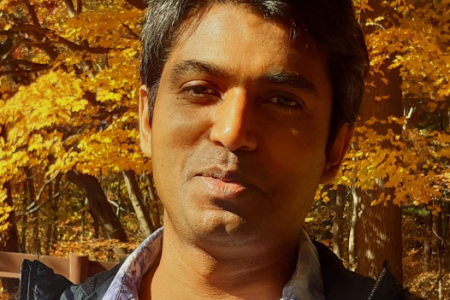 Monday, June 24, 2024 Creative Writing Student Rahad Abir named Georgia Author of the Year!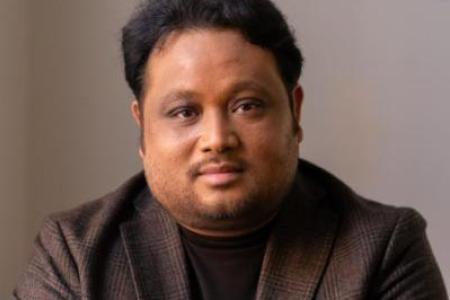 Friday, May 10, 2024 Aruni Kashyap selected as a 2024-2025 Harvard Radcliffe Institute Fellow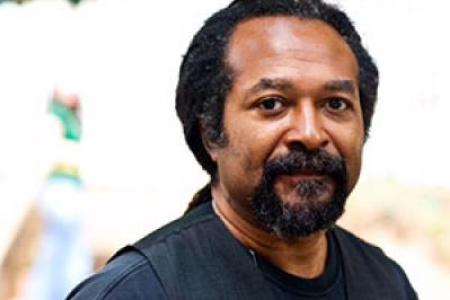 Tuesday, April 23, 2024 Reginald McKnight selected to judge the 75th National Book Awards for FictionSupport english at uga. We greatly appreciate your generosity. Your gift enables us to offer our students and faculty opportunities for research, travel, and any number of educational events that augment the classroom experience. Support the efforts of the Department of English by visiting our giving section. Give Now EVERY DOLLAR CONTRIBUTED TO THE DEPARTMENT HAS A DIRECT IMPACT ON OUR STUDENTS AND FACULTY.   English Literature PhDAwards: PhD Study modes: Full-time, Part-time Funding opportunities Programme website: English Literature Discovery DayJoin us online on 21st August to learn more about postgraduate study at Edinburgh. Find out more and register Research profileDoctorate-level study is an opportunity to expand upon your interests and expertise in a community that really values research; and to make an original, positive contribution to learning in literature and related fields. As the oldest department of English Literature in the UK, based in one of the largest and most diverse Schools in the University of Edinburgh, we are the ideal place for PhD study. Our interdisciplinary environment brings together specialists in all periods and genres of literature and literary analysis. Research excellenceBased on our performance in the latest Research Excellence Framework (REF), over 90 per cent of our research and impact is classed as world-leading and internationally excellent by Research Professional. 69 per cent is graded at the world-leading level – the highest of REF’s four categories. In Times Higher Education's REF analysis, English at Edinburgh is ranked fifth in the UK (out of more than 90 institutions) for: - the overall quality of our publications and other outputs
- the impact of our research on people’s lives
- our supportive research environment
Given the breadth and depth of our expertise, we are able to support students wishing to develop research projects in any field of Anglophone literary studies. These include American studies, literary and critical theory, the history of the book, gender and sexuality studies, and global Anglophone literatures - where our specialisms include Pacific, African, South Asian, and African-American writing. We have particular strengths in each of the main periods of English and Scottish Literature: - Renaissance/early modern
- Enlightenment
- 21st century
- Contemporary
Emergent research themes in the department include the digital humanities, the economic humanities, the environmental humanities and literature and medicine. - Explore our range of research centres, networks and projects in English and Scottish Literature
Working with colleagues elsewhere in the School of Literatures, Languages and Cultures, and across the wider University, we are able to support PhD theses crossing boundaries between disciplines and/or languages. - Be inspired by the range of PhD research in the School of Literatures, Languages and Cultures
Over the course of your PhD, you’ll be expected to complete an original body of work under the expert guidance of your supervisors leading to a dissertation of usually between 80,000 and 100,000 words. You will be awarded your doctorate if your thesis is judged to be of an appropriate standard, and your research makes a definite contribution to knowledge. - Read our pre-application guidance on writing a PhD research proposal
Go beyond the booksBeyond the Books is a podcast from the School of Literatures, Languages and Cultures (LLC) that gives you a behind-the-scenes look at research and the people who make it happen. Listen to a mix of PhD, early career and established researchers talk about their journey to and through academia and about their current and recent research. - Browse Beyond the Books episodes and hear our research community talk about their work
Training and supportBetween the School of Literatures, Languages and Cultures (LLC), the Careers Service, and the Institute for Academic Development (IAD), you’ll find a range of programmes and resources to help you develop your postgraduate skills. You will also have access to the University’s fantastic libraries, collections and worldwide strategic partnerships. Part of a communityAs part of our research community, you will be immersed in a world of knowledge exchange, with lots of opportunities to share ideas, learning and creative work. Activities range from talks by visiting speakers and work-in-progress seminars, to reading groups, conferences, workshops, performances, online journals and forums, many of which are led by PhD candidates. Highlights include student reading for the James Tait Black Prizes, Britain's oldest literary awards which typically involve reading submissions across fiction and biography and advising the judges on the shortlists. - Read an interview with 2022 James Tait Black reader, Céleste Callen
Our graduates tell us that they value the friendliness of the School of Literatures, Languages and Cultures (LLC), the connections they make here and the in-depth guidance they receive from our staff, who are published experts in their field. A UNESCO World City of Literature, Edinburgh is a remarkable place to study, write, publish, discuss and perform prose, poetry and drama. Take a PhD with us and you will be based in the School of Literatures, Languages and Cultures (LLC) in the historic centre of this world-leading festival city. You will have access to the University’s many literary treasures. These include the libraries of: - William Drummond
- Lewis Grassic Gibbon
- Hugh MacDiarmid
- Norman MacCaig
The Centre for Research Collections holds the W.H. Auden collection; the Corson Collection of works by and about Sir Walter Scott; and the Ramage collection of poetry pamphlets. It also holds a truly exceptional collection of early Shakespeare quartos and other early modern printed plays put together by the 19th century Shakespearean James Halliwell-Phillipps, the correspondence of Thomas and Jane Welsh Carlyle (the focus of one of the major editorial projects in Victorian studies of the last half-century), and the extensive Laing collection of medieval and early modern manuscripts, as well as letters and papers by - and relating to - authors including: - Christopher Isherwood
- Rudyard Kipling
- John Middleton Murry
- Walter de la Mare
- George Mackay Brown
- Compton Mackenzie
Many of the University's Special Collections are digitised and available online from our excellent Resource Centre, Computing Labs, and dedicated PhD study space in the School of Literatures, Languages and Cultures (LLC). Look inside the PhD study space in LLC In the cityOur buildings are close to the National Library of Scotland (where collections include the Bute Collection of early modern English drama and the John Murray Archive), Edinburgh Central Library, Scottish Poetry Library, Scottish Storytelling Centre, Writers’ Museum and a fantastic range of publishing houses, bookshops, and theatres. We have strong links with the Edinburgh International Book Festival, which annually welcomes around 1,000 authors to our literary city. Entry requirementsThese entry requirements are for the 2024/25 academic year and requirements for future academic years may differ. Entry requirements for the 2025/26 academic year will be published on 1 Oct 2024. A UK masters, or its international equivalent, with a mark of at least 65% in your English literature dissertation of at least 10,000 words. If your masters programme did not include a dissertation or included a dissertation that was unmarked or less than 10,000 words, you will be expected to produce an exceptional research proposal and personal statement to show your ability to undertake research at the level required by this programme. International qualificationsCheck whether your international qualifications meet our general entry requirements: - Entry requirements by country
- English language requirements
Regardless of your nationality or country of residence, you must demonstrate a level of English language competency at a level that will enable you to succeed in your studies. English language testsWe accept the following English language qualifications at the grades specified: - IELTS Academic: total 7.0 with at least 6.5 in each component. We do not accept IELTS One Skill Retake to meet our English language requirements.
- TOEFL-iBT (including Home Edition): total 100 with at least 23 in each component. We do not accept TOEFL MyBest Score to meet our English language requirements.
- C1 Advanced ( CAE ) / C2 Proficiency ( CPE ): total 185 with at least 176 in each component.
- Trinity ISE : ISE III with passes in all four components.
- PTE Academic: total 70 with at least 62 in each component.
Your English language qualification must be no more than three and a half years old from the start date of the programme you are applying to study, unless you are using IELTS , TOEFL, Trinity ISE or PTE , in which case it must be no more than two years old. Degrees taught and assessed in EnglishWe also accept an undergraduate or postgraduate degree that has been taught and assessed in English in a majority English speaking country, as defined by UK Visas and Immigration: - UKVI list of majority English speaking countries
We also accept a degree that has been taught and assessed in English from a university on our list of approved universities in non-majority English speaking countries (non-MESC). - Approved universities in non-MESC
If you are not a national of a majority English speaking country, then your degree must be no more than five years old* at the beginning of your programme of study. (*Revised 05 March 2024 to extend degree validity to five years.) Find out more about our language requirements: Read our general information on tuition fees and studying costs: Scholarships and fundingFeatured funding. There are a number of scholarship schemes available to eligible candidates on this PhD programme, including awards from the Arts and Humanities Research Council. Please be advised that many scholarships have more than one application stage, and early deadlines. - Find out more about scholarships in literatures, languages and cultures
Other funding opportunitiesSearch for scholarships and funding opportunities: Further information- Phone: +44 (0)131 650 4086
- Contact: [email protected]
- School of Literatures, Languages & Cultures
- 50 George Square
- Central Campus
- Programme: English Literature
- School: Literatures, Languages & Cultures
- College: Arts, Humanities & Social Sciences
This programme is not currently accepting applications. Applications for the next intake usually open in October. Start date: September 2024 Awards: PhD (36 mth FT, 72 mth PT) Application deadlinesDue to high demand, the school operates a number of selection deadlines. We will make a small number of offers to the most outstanding candidates on an ongoing basis, but hold the majority of applications until the next published selection deadline when we will offer a proportion of the places available to applicants selected through a competitive process. Deadlines for applicants applying to study in 2024/25: | Round | Application deadline | Places awarded by | | 1 | 24 November 2023 | 15 December 2023 | | 2 | 30 April 2024 | 14 June 2024 | The online application process involves the completion of a web form and the submission of supporting documents. For a PhD programme, you should include: - a sample of written work of about 3,000 words (this can be a previous piece of work from an undergraduate or masters degree)
- a research proposal - a detailed description of what you hope to achieve and how
- Pre-application guidance
Before you formally apply for this PhD, you should look at the pre-application information and guidance on the programme website. This will help you decide if this programme is right for you, and help us gain a clearer picture of what you hope to achieve. The guidance will also give you practical advice for writing your research proposal – one of the most important parts of your application. Find out more about the general application process for postgraduate programmes: PhD in Creative WritingProgram overview. The PhD in Creative Writing and Literature is a four-year course of study. Following two years of course work that includes workshop, forms classes, pedagogical training, and literature, students take exams in two areas, one that examines texts through the lens of craft and another that examines them through the lens of literary history and theory. Recent examples of the genre area include Comic Fiction, History of the Love Lyric, and Fantasy; recent examples of the scholarly area include History of the Novel, 20th Century American Poetry, and Modern & Contemporary British Fiction. In the first two years, students take three courses per semester; the teaching load throughout the program is one class per semester. Every PhD student has the opportunity to teach creative writing, with many also teaching literature classes. Most students are funded by teaching, with two or three at a time funded by editorial work at The Cincinnati Review or Acre Books, and others funded in their dissertation year by college- or university-level fellowships. Fifth-year support, while not guaranteed, has generally been available to interested students in the form of student lecturerships, which carry a 2-2 load. The Creative Writing PhD at the University of Cincinnati has maintained over the last decade more than a 75% placement rate into full-time academic jobs for its doctoral graduates. Two-thirds of these positions are tenure-track. Application Information - Exam Areas and Committee
- Doctoral Candidacy Form
- Foreign Language
- Exam Procedures
- Dissertations
- Applying for Fifth-Year Funding
- Working for The Cincinnati Review
- Teaching Opportunities
- All Creative Writing Graduate Courses
- Archive of Technique & Form Courses
 Studying Here- Find your course
- Fees and funding
- International students
- Undergraduate prospectus
- Postgraduate prospectus
- Studying abroad
- Foundation Year
- Placement Year
- Your future career
- Central London campus
- Distance learning courses
- Prospectuses and brochures
- For parents and supporters
- Schools and colleges
- Sign up for more information
Student LifeAccommodation. Chat with our studentsSupport and wellbeing. - Visit Royal Holloway
- The local area
- Virtual experience
Research & TeachingDepartments and schools. Working with usOur historyRoyal Holloway today- Equality, Diversity and Inclusion
- Recruiting our students
- Past events
- Environmental Sustainability
- Global Engagement and Partnerships
- Facts and figures
- Collaborate with us
- Governance and strategy
- Online shops
- How to find us
- Financial information
- Local community
- Legal Advice Centre
In this section Find the right course Online undergraduate prospectus  Explore our virtual experience Research institutes and centres Our education prioritiesCreative writing and practice-based phd, site search. The Department of English supports a significant body of postgraduate students developing Practice-based PhDs, in which a component part of the research involves producing a body of creative work. We have students developing novels, poetry collections, plays and creative work involving experimental poetic practices across disciplines and through a wide range of media. This creative component is coupled with the submission of a written critical component. The relationship between the creative and critical work varies depending on the specific project, but can involve writing a critical reflection on the creative work and process of generating it; critically engaging with the work of related writers or artists; forwarding practical and/or theoretical lines of inquiry initiated by the creative practice, and so forth. The department welcomes applications for Practice-based PhDs from persons interested in pursuing this mode of research. Applying for a practice-based PhDWe welcome applications from students who have or are about to obtain an MA or MFA in a related discipline. We also expect students to have achieved at least a 2:1 or equivalent in their first degree. We accept applications from non-standard applicants who can demonstrate experience and aptitude, including persons from diverse disciplinary backgrounds and creative practitioners who may not have had a traditional academic career. Overseas applicants should have a degree of equivalent standard and must possess an excellent level of competence in spoken and written English. (Required IELTS scores are 7 overall with 7 in writing, and no remaining subscore to be below 5.5 if the applicant requires a student visa.) Students are initially registered for an MPhil degree and transfer to PhD on satisfactory completion of the upgrade process. Full-time PhD students are expected to complete their degree in three years (with a fourth and final year for writing up). Contacting supervisorsWe recommend that you consult the Creative Writing and Practice-based Research page and look through the research profiles of our academic staff involved in supervision. It is worth determining whether your research interests resonate with any of the specific areas of interests outlined and, if so, to emphasise this in your application. You may consider sending a preliminary research proposal to a potential supervisor ahead of completing your formal application. In addition to this preliminary proposal, you may also choose to send your writing sample. Sending out material in this manner will offer you a sense of whether your proposed area of research matches the specific expertise and interests of any potential supervisor(s) with whom you might like to work. Alternatively, should you decide to go straight into the formal application procedure, your proposal will be circulated to all potential supervisors for consideration. Writing a research proposalAlthough there is no set model for how to put together your research proposal, the following is a basic outline of what you might include: - Synopsis of both creative and critical components;
- Research questions and contribution to knowledge;
- Background to research, including key literature;
- How the proposal relates to this context;
- Methods and approaches used (for both creative and critical components);
- Draft timetable;
- Indicative bibliography
Funding opportunities/TECHNEThose intending to study for a PhD in the Department of English are able to apply for Arts and Humanities Research Council (AHRC) studentships and for College Studentships. Please visit our TECHNE Applications and Funding page for more information on how to apply. College studentships are offered to unsuccessful TECHNE applicants before other applicants are considered. Funding for non-EU overseas students is limited to a very small number of fee waivers allocated by the Faculty. Further informationPlease direct any further enquiries about Postgraduate Research in the Department of English to Professor Deana Rankin ( English Postgraduate Research Lead ). 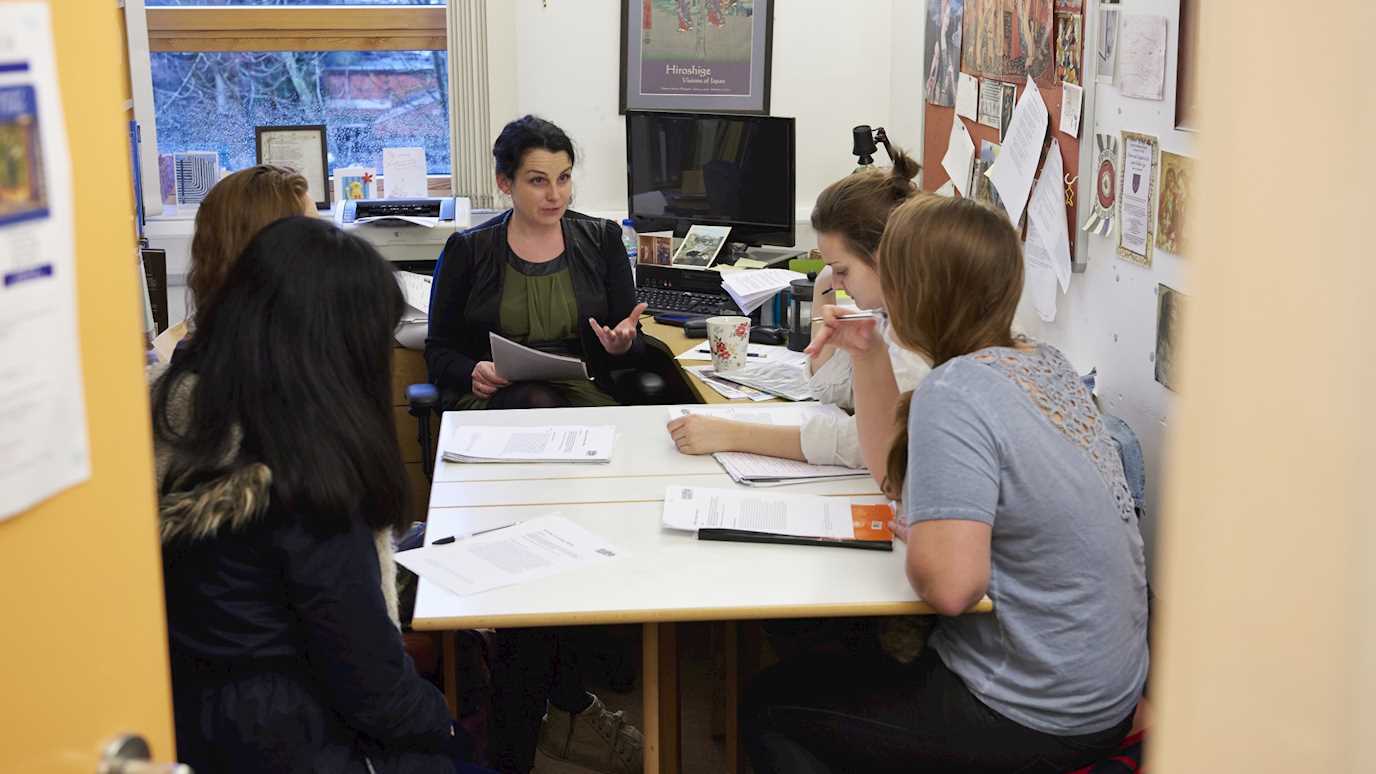 Explore Royal Holloway ScholarshipsGet help paying for your studies at Royal Holloway through a range of scholarships and bursaries.  Clubs and societiesThere are lots of exciting ways to get involved at Royal Holloway. Discover new interests and enjoy existing ones.  Heading to university is exciting. Finding the right place to live will get you off to a good start.  Whether you need support with your health or practical advice on budgeting or finding part-time work, we can help.  Discover more about our academic departments and schools.  Research Excellence FrameworkFind out why Royal Holloway is in the top 25% of UK universities for research rated ‘world-leading’ or ‘internationally excellent’.  Challenge-led research themesRoyal Holloway is a research intensive university and our academics collaborate across disciplines to achieve excellence.  Discover world-class research at Royal Holloway.  Discover more about who we are today, and our vision for the future.  Royal Holloway began as two pioneering colleges for the education of women in the 19th century, and their spirit lives on today.  We’ve played a role in thousands of careers, some of them particularly remarkable.  Find about our decision-making processes and the people who lead and manage Royal Holloway today.  Grad Interest: Poetry and PoeticsMadison storrs. 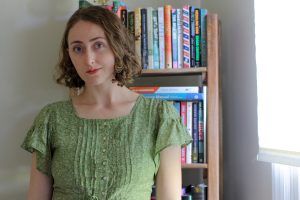 2017, BA English, Florida State University 2021, MA English, North Carolina State University Madison Storrs is a first-year PhD student and Teaching Fellow in the Department of English & Comparative Literature. Her research focuses on the intersections of literature, botany, and art of the long 19th century in Britain. In particular, she considers how women incorporated botanical studies into their writing and art practices. She is also interested in British Romanticism, ecocriticism, ontology, aesthetics, design, and visual culture. Teaching Assistantship, First-Year Writing, North Carolina State University, 2020–2021. Curriculum Vitae / ResumeResearch interests. Aesthetics | American Literature from 1789 to 1900 | British Literature from 1789 to 1900 | British Literature from 1900 to the Present | Children’s Literature | Depictions Of The Child | Feminist Theory And Gender & Sexuality Studies | Literature and History | Literature and Philosophy | Poetry and Poetics | Science Writing | Travel Writing | Visual Culture and Arts | Women Writers Xochi-María Ramos-Lara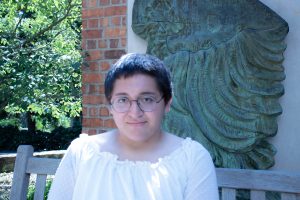 2023, B.A. Gender Studies / English, University of North Carolina at Chapel Hill xochi-maría ramos-lara (she/they) is a doctoral student in english and comparative literature. her main research interest focuses on the (lacanian) subjectivity of gay latinx poets as they wrote during the american aids epidemic of the 80s and 90s, taking into account the presence of the hiv virus itself as an important character. besides this, x. is interested in non-white marxist critiques of the state, hegemonic ideologies, and culture; anti-white violent resistance via brown power (ex. the palestinian intifadas); queer performances of subversion in the american drag and ballroom scenes; and the power dynamics of bareback subculture in gay pornography. outside of the academy, x. loves writing poetry, collective education on critical ethnic studies, participating in local political action, and going to gay clubs as a form of praxis. Publications:- “i planted some lavender in my front yard saturday morning,” SAGE , 2024.
- “afuera,” Screen Door Review , 2023.
- “white mother,” Carolina Muse: Literary & Arts Magazine , 2023.
African American Literature | Comparative Literature | Contemporary American Literature | Contemporary Multiethnic American Literature | Creative Writing | Critical Race Studies | Critical Theory and Cultural Studies | Feminist Theory And Gender & Sexuality Studies | Latina / Latino Literature | Literature and History | Literature and Philosophy | Literature of the Americas | Performance Studies | Philosophy Of Language | Poetry and Poetics | Post-Colonial Literature and Theory | Queer Theory | Social Justice | Visual Culture and Arts | Women Writers Rene Marzuk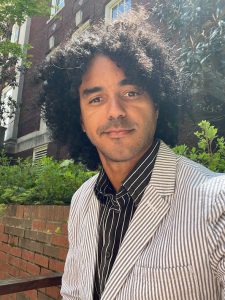 2023, MA English, University of North Carolina at Greensboro 2022, BA English, University of North Carolina at Greensboro Rene Marzuk is interested in exploring continuities across languages and cultures. He is particularly intrigued by literary articulations of marginalized identities and by literary instances of emergence, widely defined. He is drawn to intertextual approaches that reveal the production of knowledge as a collective endeavor spanning times, cultures, and disciplines. William Neal Reynolds Fellowship within the Royster Society of Fellows African American Literature | Children’s Literature | Comparative Literature | Contemporary American Literature | Contemporary Multiethnic American Literature | Critical Theory and Cultural Studies | Digital Humanities | Latina / Latino Literature | Literature and Philosophy | Literature of the Americas | Poetry and Poetics | Post-Colonial Literature and Theory | Queer Theory | Southern Literature | Transatlantic Studies Maggie Anne Miller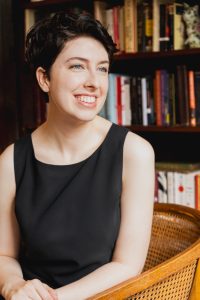 2020, BA English, Dalton State College 2023, MA English, Georgia State University Born and raised in Georgia, Maggie is a first-year and first-generation Ph.D. student in English literature. Her focus lies in prosody and the poetic imagination of the sixteenth and seventeenth centuries, particularly in expressions of theological and philosophical ideas and aesthetics in the poetry of Milton, Donne, Spenser, Vaughan, Herbert, and others. Apart from this focus, Maggie enjoys the work of Dostoevsky, O’Connor, Hardy, and many other thinkers in whose work the human condition unites or collides with Logos . Striving toward a career in teaching, Maggie introduces students to literature that helps them understand themselves in the same way it has helped her. “‘Not a Chaos’: The Intentionality of Music in the Gothic Novel and Film,” SAMLA News 41 (2020): 9-13. - Booker Fellowship, Department of English and Comparative Literature, University of North Carolina, 2023-24.
Aesthetics | British Literature from 1485 to 1660 (including Milton) | Early Modern Literature And Culture | History of the Book | Poetry and Poetics Dailihana Esperanza Alfonseca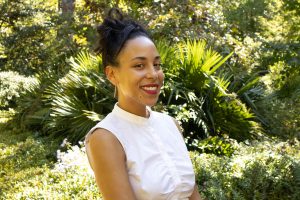 2013, AS in Fashion Management, Bay State College 2019, BS in Fashion Merchandising & Management, Southern New Hampshire University Afro-Caribbean-American writer Dailihana Alfonseca is currently working on her Masters in Health Humanities in the Department of English and Comparative Literature at UNC-Chapel Hill. Her concentration in Literature, Medicine, and Culture continues to amplify marginalized perspectives through her writing and research of the Im/Migrant experiences within America and of the colonial impacts of the past. In working with what Zora Neale Hurston called “Literary Science,” and what W.E.B. Dubois coined as “Double Consciousness,” her writing marries creative works, archival research, and medical analysis to convey tangible bridges of experiential knowledge. She does this in hopes of expanding the scope of knowledge available to historically under-served communities. Her poetry has previously appeared in The Bangalore Review, The Global Gazette, and her fiction has appeared in Driftwood Press Literary Magazine. In 2023 she won a Robert J. Dau Prize and was named an emerging writer to watch by PEN America. Her short story, “Spanish Soap Operas Killed My Mother,” was also nominated for a prestigious Pushcart Prize. - Spanglish ( A Poem) – Linguistic Evolution, Trauma, and Colonial Survivability
- The Global Gazette · Dec 15, 2022
- Spanish Soap Operas Killed My Mother
- Driftwood Press · Jan 1, 2022
- English as a Second Language
- Bangalore Review · Nov 20, 2020
2023 Robert J. Dau Prize for Emerging Writers by P.E.N. America Office: HHIVE Lab in Greenlaw Hall Gaskin Library, Room 524 African American Literature | Comparative Literature | Creative Writing | Critical Race Studies | Critical Theory and Cultural Studies | Feminist Historiography | Feminist Theory And Gender & Sexuality Studies | Latina / Latino Literature | Literature of the Americas | Literature, Medicine and Culture | Poetry and Poetics | Women Writers Christopher Catanese2013, M.A. English, Duke University 2008, B.A. English, Davidson College I work on British and transatlantic literature of the eighteenth century and Romantic era, with an emphasis on poetry and genre. I am particularly interested in evolving systems of land use, in working-class writers and rural issues, commons and enclosures, and economic and agricultural history. I have published on Samuel Johnson, antiquarianism, and the mass reading public; on Jean-Baptiste Lamarck, vitalism, and Romantic-era natural history, and my journal article on Robert Bloomfield, Wordsworth, and Romantic genre transformations won the 2016 Ralph Cohen Prize in New Literary History . I also publish poetry and literary translations, and I am coeditor of the small poetry press Golias Books. - “Edward Rushton,” in Jackson Bibliography of Romantic Poetry , edited by J. R. de J. Jackson et al., University of Toronto.
- “Patronage and Poetic Form: Henry Kirke White, Capel Lofft, and the Monthly Mirror,” in Henry Kirke White, 1785–1806, edited by Tim Fulford. Online, August 2022.
- “Refinement and Romantic Genre,” New Literary History 48, no. 1 (2017). Winner of the 2016 Ralph Cohen Prize.
- “Johnson, Warton, and the Romance Reader,” in Community and Solitude: New Essays on Johnson’s Circle , edited by Anthony Lee (Bucknell University Press, 2019).
- “Survival Narratives: The Georgic and the Romantic Genre-System,” in Narratives of Romanticism , edited by Sandra Heinen and Katharina Rennhak (Wissenschaftlicher Verlag Trier, 2017).
- Precious against a Precious Thing: Selected Poems of Michael Field , selected, edited, and introduced by Christopher Catanese and Lawrence Giffin, preface by Stacy Szymaszek (Golias Books, 2019).
- 2023. “Listening to the System: Genre in the D. K. Wilgus Papers.” Research grant, Wilson Library, University of North Carolina, Chapel Hill, NC
- 2022–2023. “Land, Labor, Literature.” Public Humanities Incubator Award and Fellowship, Modern Language Association
- 2022. Dahl Family Fellowship, University of North Carolina, Chapel Hill, NC
- 2016. Graduate Research Fellowship, 18th-century British paintings collections, North Carolina Museum of Art, Raleigh, NC
- 2016. Duke International Research Travel Award, University of Vienna, Austria
- 2015–2016. William Preston Few Fellowship, Duke University
- 2015. Six-Month Research Fellowship, Deutscher Akademischer Austausch Dienst (DAAD), Seminar für Englische Philologie, Georg-August-Universität Göttingen
- 2015. Duke International Research Travel Award, Niedersächsische Staats- und Universitätsbibliothek Göttingen
- 2015. Anne T. and Robert M. Bass Summer Research Fellowship, Goethe-Institut Göttingen
Office: Greenlaw 528 British Literature from 1660 to 1789 | British Literature from 1789 to 1900 | Critical Race Studies | Critical Theory and Cultural Studies | Digital Humanities | Genre Theory | Literature and History | Poetry and Poetics | Transatlantic Studies Izzy G. T. Howard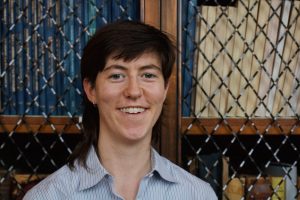 2020, BA English, Trinity College Dublin Izzy (they/them) is a fourth-year PhD candidate in the Department of English and Comparative Literature. They study the relationship between the soul and body in medieval literary, aesthetic, and dramatic representations of Creation. Their dissertation, Made A Living Soul: Genesis and the Creation of the Soul in Medieval Devotional and Mystic Literature examines ideas of the soul as developed in early medieval Scholastic exegesis, and how these understandings of the soul are complicated and affirmed in medieval devotional and mystic texts. In their research on the medieval soul and body, Izzy examines the language used to structure the corporeal, physical self and the sensing, feeling, and cognative self alongside theories of queer embodiment, affect, and representations. Their broader interests include manuscript studies, medieval philosophy and theology, poetics, and literary criticism. With H.M. Cushman “Bodies on Display” in A Cultural History of Trans Lives in the Middle Ages (300-1445). Bloomsbury. Forthcoming. Teaching AwardsLatina/o Studies Teaching Fellowship, UNC Latina/o Studies Program, 2022 Donald Howard Travel Scholarship, New Chaucer Society, 2024 Trans Travel Fund, Society for Medieval Feminist Scholarship, 2023 CARA Summer Scholarship, Medieval Academy of America, 2022 Internal: Graduate Student Excellence Award, UNC Medieval and Early Modern Studies, 2024 Joseph Breen Award, UNC-Chapel Hill Dept. of English & Comparative Literature, 2023 Research Grant, UNC-Chapel Hill Medieval and Early Modern Studies, 2023 Travel Award, UNC-Chapel Hill Graduate and Professional Student Government, 2023 Travel Grant, UNC-Chapel Hill Dept. of English & Comparative Literature, 2022, 2024 First Class Honours in English Studies, Trinity College Dublin, 2020 Office: Dey Hall 342 Aesthetics | British Literature from 1485 to 1660 (including Milton) | British Literature from its beginning to 1485 | Comparative Literature | Creative Writing | Critical Theory and Cultural Studies | Digital Humanities | Drama | Early Modern Literature And Culture | History of the Book | Literature and Philosophy | Literature and Religion | Performance Studies | Philosophy Of Language | Poetry and Poetics | Queer Theory | The English Language Amy Yue-Yin Chan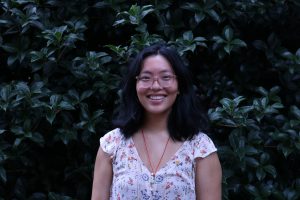 2018, BA Classics, minors French & English, summa cum laude, University of Pennsylvania Scholarship: - “Review of The Oxford Handbook of Emily Dickinson .” Emily Dickinson International Society Bulletin 35.1 (2023), 19-20.
Poems et al.: - “On Hudson River.” Bayou (forthcoming).
- “ My Mother Says. ” Rattle 83 (2024).
- “ Flux. ” BlazeVOX: Fall 2021 , 412-18.
- “ Lai-jee .” Indiana Review 43.1 (2021), 85-92.
- Doris Betts Award for Excellence in Teaching Composition, 2023
- Graduate Student Conference Paper Award, Ralph Waldo Emerson Society, 2023
- Dickinson Critical Institute Grant, Emily Dickinson International Society, 2022
- Bain Award (Excellence in Pre-1900 American Lit.), UNC-CH DOECL, 2023
- Travel Grant, UNC-CH DOECL, 2023
- Transportation Grant, UNC-CH Graduate School, 2022
- Travel Award, UNC-CH Graduate & Professional Student Government, 2022
- Booker Fellowship, UNC-CH DOECL, 2021
- Inclusive Excellence Top-Up, UNC-CH Graduate School, 2021
Office: Dey 340 Aesthetics | American Literature from 1789 to 1900 | American Literature to 1900 to the present | Comparative Literature | Feminist Theory And Gender & Sexuality Studies | Genre Theory | Modernism | Philosophy Of Language | Poetry and Poetics Elisabeth McClanahan Harris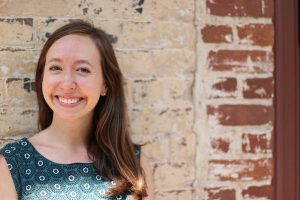 2019, MA English, George Washington University 2012, BA Humanities, Columbia International University Elisabeth studies 19th century American literature and medicine, focusing on how changing theories of mental illness and its treatment were encoded in congregate care institutions over the course of the century. Her research, which draws on a varied archive of patient memoirs, journalistic exposes, and fictional depictions of congregate care, investigates entanglements of race, gender, and disability in questions of mental healthcare. “Conversion and Countermemory: Jarena Lee, Maria Stewart, and the Spiritual Motherhood of Mary Magdalene.” Nineteenth-Century American Women Writers and Theologies of the Afterlife: A Step Closer to Heaven, edited by Emily Hamilton-Honey and Jennifer McFarlane Harris, Routledge, 2021. - Robert Bain Award for scholarship in American Literature, UNC English Department, 2021
- Southern Futures Graduate Award, 2020
- McCandlish Endowment Fellowship, 2017-2019
- PEO Continuing Education Grant, 2018
Office: Greenlaw 406 African American Literature | American Literature from 1789 to 1900 | American Literature to 1900 to the present | Asian American Literature | Depictions Of The Child | Disability Studies | History of the Book | Literature and Religion | Literature and Science | Literature, Medicine and Culture | Poetry and Poetics | Southern Literature | The Novel | Women Writers Karah M. Mitchell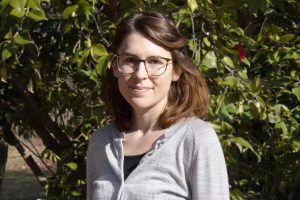 2016, MA English, University of Missouri at Columbia 2014, BA English (French minor), Louisiana State University at Baton Rouge I am a PhD candidate studying American literature of the long nineteenth century. My research interests largely revolve around animal studies and how literature has shaped historical developments in human-animal relations. At UNC, I have taught classes on poetry, animals in popular literary genres, science writing, and composition, and I have also gained extensive experience working as a graduate writing coach at the UNC Writing Center. As a scholar and a teacher, I am driven by a deep interest in interdisciplinary thinking and how written words actively shape our lived experiences in the world. In my dissertation project, “‘If You Are Always Kind’: Animals and Becoming Human(e) in Nineteenth-Century American Children’s Literature,” I demonstrate how materials written for and by children were historically significant in the development and consolidation of “humane” values that continue to shape our present moment. My project foregrounds how these materials racialized and gendered different animal species to generate a “humane” discourse that fueled the emergence of animal welfare initiatives. While I focus on these developments in the United States, I also consider the transnational and transatlantic dimensions of the animal welfare movement. As a scholar, much of my methodology is grounded in working with archival materials, and I have held research fellowships from the Massachusetts Historical Society and the American Antiquarian Society in the course of working on this project. In considering many materials that have been forgotten today but which circulated widely in the nineteenth century, I shed new light on works that—like “Mary’s Lamb” (1830), which I quote in the first part of my title—continue to shape human behavior towards animals from a young age. In my future work beyond this current project, I’m interested in how literary representations of animals influenced the development of veterinary science as a distinct medical field from the early 1700s up until 1879, when the first public college of veterinary medicine was founded in the United States. I am also more broadly interested in the history of public education in the United States. - “Black Cats and White Women: Animal Autobiography and the Shaping of Race, Species, and Gender,” forthcoming in American Literature , vol. 96, no. 3, September 2024.
- “‘Our School House is the Universe’: Henry David Thoreau as Radical Educator,” forthcoming chapter in The Oxford Handbook of Henry David Thoreau , 2025.
- “A Posthumous Life: Thoreau and the Possibilities of Posthuman Biography,” The Concord Saunterer: A Journal of Thoreau Studies , vol. 27, 2019, pp. 127-142.
- Review of Antoine Traisnel’s Capture: American Pursuits and the Making of a New Animal Condition (University of Minnesota Press, 2020) for Configurations: A Journal of Literature, Science, and Technology , vol. 30, no. 1, Winter 2022, pp. 107-110.
- Review of Laura Dassow Walls’s Henry David Thoreau: A Life for the Emerson Society Papers , vol. 29, no. 2, Fall 2018, p. 14.
- Online Review of LeAnne Howe’s Savage Conversations for The Carolina Quarterly , March 2019.
- Online Review of Caleb Johnson’s Treeborne: A Novel for The Carolina Quarterly , September 2018.
- Online Review of Filip Springer’s History of a Disappearance: The Story of a Forgotten Polish Town for The Carolina Quarterly , April 2018.
- Tanner Award for Excellence in Undergraduate Teaching by Graduate Teaching Assistants, UNC Office of the Provost, 2024
- Krista Turner Award for Excellence in Student Support for Spring 2022, UNC Dept. of English & Comparative Literature
- Student Undergraduate Teaching Award, UNC Chancellor’s Awards, 2022
- Off-Campus Dissertation Research Fellowship, Spring 2024, The Graduate School, UNC
- Lapides Fellowship in Pre-1865 Juvenile Literature and Ephemera, 2023-2024, American Antiquarian Society, Worcester MA
- Andrew Oliver Research Fellowship, 2022-2023, Massachusetts Historical Society, Boston MA
- Dissertation Research Fellowship, Summer 2022, UNC Dept. of English & Comparative Literature
- Robert Bain Award for Excellence Achieved by a Second-Year Student in Pre-1900 American Literature, 2018, UNC
Office: 121 Dey Hall American Literature from 1789 to 1900 | American Literature to 1900 to the present | British Literature from 1789 to 1900 | British Literature from 1900 to the Present | Children’s Literature | Comparative Literature | Critical Race Studies | Critical Theory and Cultural Studies | History of the Book | Literature and Education | Literature and History | Literature and Science | Literature, Medicine and Culture | Poetry and Poetics | Posthumanism | Science Writing | Transatlantic Studies Program in Poetry and PoeticsSearch form. 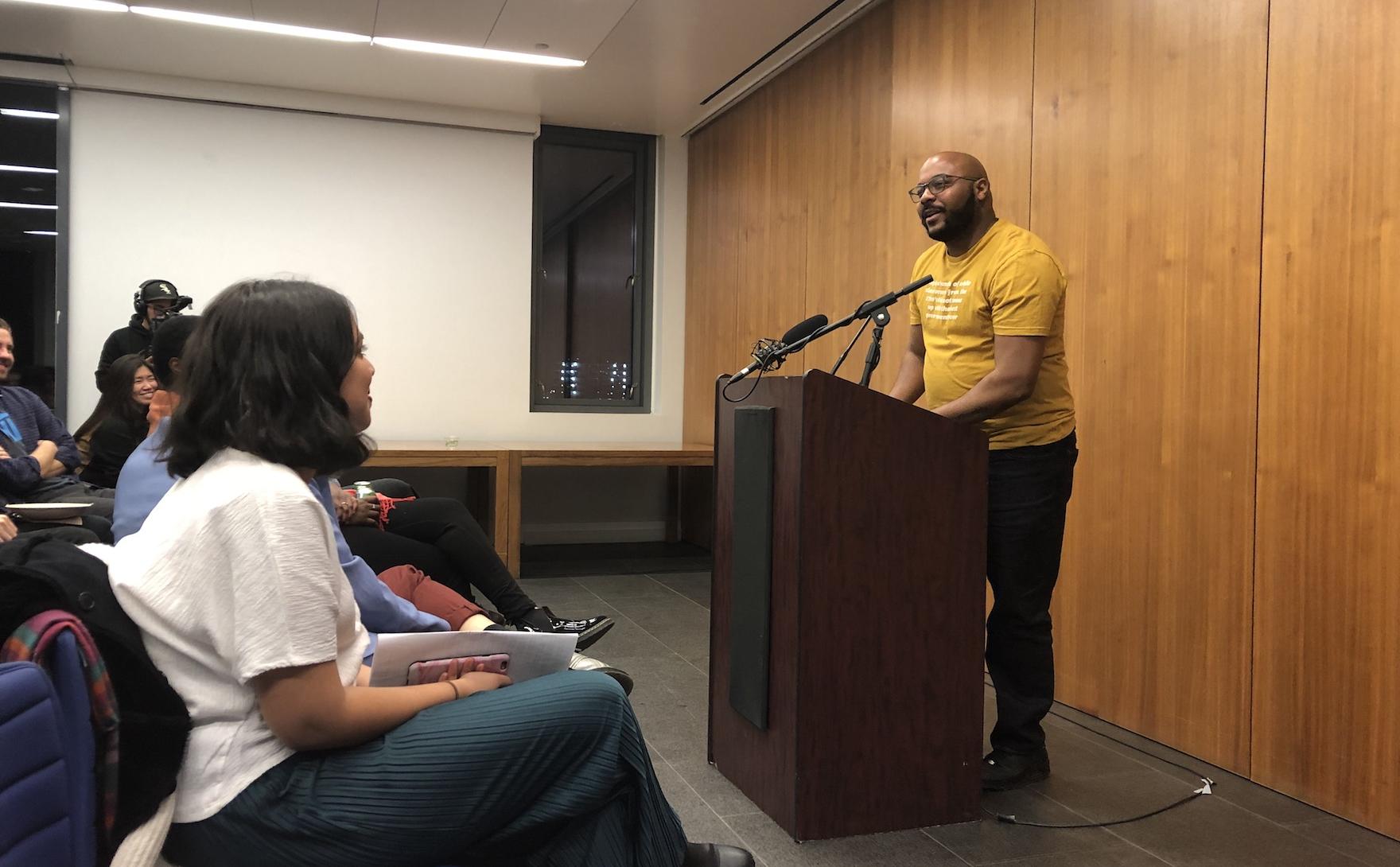 We have moved! Please visit our new page at https://creativewriting.uchicago.edu/program-poetry-and-poetics . Nate Marshall reads for the 2019 Ron Offen Poetry series.The Program in Poetry and Poetics brings together a diverse community of literary scholars, poets, and translators working on poetry and poetics across a spectrum of regions, historical periods, and theoretical approaches at the University of Chicago. Our faculty includes experts on classical Chinese poetry, the French avant-garde, the modern reception of archaic Greek poetry, and contemporary British and American writing, to name but a few areas of scholarly interest. Through our ongoing programs and initiatives, we seek to expand the critical understanding of poetics as a field that encompasses not only the study of poetry, but various aspects of literary theory, media studies, and historicist models of inquiry as well. Because many of the faculty members and graduate students presently engaged in the study of poetry and poetics at Chicago are publishing poets, we also foster work that crosses the border between critical thought and creative practice. We invite you to join us at any of the events that we host during the academic year. Our poetry reading series, Poem Present , brings distinguished contemporary poets such as Simone White, Brandon Shimoda, Susan Stewart, Nathaniel Mackey, and Robert Hass to read from their work at the university. Our scholarly lecture series, History and Forms of Lyric , has invited visitors such as Andrea Brady, Adriana Jacobs, Liesl Olson, Marjorie Perloff and Michael Wood to deliver papers on scholarly subjects relating to poetry as well. (Many of these readings and lectures may now be viewed on our online media archive). The university also hosts the Poetry and Poetics Workshop , a working colloquium for graduate students, scholars, and poets studying poetry both at the university and beyond. Additionally, the Poetics Program has long-standing ties to our graduate student-run literary journal, The Chicago Review , one of the nation’s premier literary journals. For more information about the Program in Poetry and Poetics and our upcoming events, please join our mailing list . Poetry and Poetics The Program in Poetry and Poetics brings together a diverse community of literary scholars, poets, and translators working on poetry and poetics across a spectrum of regions, historical periods, and theoretical approaches at the University of Chicago. The faculty includes experts on classical Chinese poetry, the French avant-garde, the modern reception of archaic Greek poetry, and contemporary British and American writing. The program seeks to expand the critical understanding of poetics as a field that encompasses not only the study of poetry, but various aspects of literary theory, media studies, and historicist models of inquiry as well. Because many of the faculty members and graduate students presently engaged in the study of poetry and poetics at the university are publishing poets, the program also fosters work that crosses the border between critical thought and creative practice. Selected Faculty Rachel Galvin  Srikanth Reddy Jennifer ScappettoneSample courses. ENGL 30250 - The Means of Production: Contemporary Poetry and Literary Publishing ( Srikanth (Chicu) Reddy ) This course will introduce students to the editorial principles, material and institutional infrastructure, and collaborative practices of literary evaluation in the making of contemporary American poetry. How does a poem 'make it' into the pages of Chicago Review . . . or The Paris Review? How do individual readers and editorial collectives imagine the work of literary assessment and aesthetic judgment in our time? We will begin the course with a survey of new directions in Anglophone poetry as a preparation for an intensive editorial practicum in the evaluation and assessment of literary manuscripts in the second half of the term. Course work will include reviewing and evaluating manuscript submissions to the Phoenix Poets book series at the University of Chicago Press. CRWR 49300 - Thesis/Major Projects in Poetry ( Margaret Ross ) This thesis workshop is for students writing a creative BA or MA thesis in poetry, as well as creative writing minors completing the portfolio. Because it is a thesis workshop, the course will focus on various ways of organizing larger poetic “projects.” We will consider the poetic sequence, the chapbook, and the poetry collection as ways of extending the practice of poetry beyond the individual lyric text. We will also problematize the notion of broad poetic “projects,” considering the consequences of imposing a predetermined conceptual framework on the elusive, spontaneous, and subversive act of lyric writing. Because this class is designed as a poetry workshop, your fellow students’ work will be the primary text over the course of the quarter. Required for CW majors and MAPH CW Option students completing creative BA and MA theses in poetry and CW minors completing minor portfolios in poetry. ENGL 42918 - CDI Seminar: Exploratory Translation ( Jennifer Scappettone ) Focusing on the theory, history and practice of poetic translation, this seminar includes sessions with invited theorists and practitioners from North and South America, Europe, and Asia. Taking translation to be an art of making sense that is transmitted together with a craft of shapes and sequences, we aim to account for social and intellectual pressures influencing translation projects. We deliberately foreground other frameworks beyond “foreign to English” and “olden epochs to modern”—and other methods than the “equivalence of meaning”—in order to aim at a truly general history and theory of translation that might both guide comparative cultural history and enlarge the imaginative resources of translators and readers of translation. In addition to reading and analysis of outside texts spanning such topics as semantic and grammatical interference, gain and loss, bilingualism, self-translation, pidgin, code-switching, translationese, and foreignization vs. nativization, students will be invited to try their hands at a range of tactics, aiming toward a final portfolio of annotated translations. FREN 37701 - Baudelaire ( Rosanna Warren ) [Taught in French] Une étude approfondie de l’oeuvre de Baudelaire. Nous lirons Les Fleurs du mal, Les Petits poèmes en prose, et morceaux choisis de sa critique d’art, essayant d’établir une perspective sur ce grand poète à la fois classique et romantique, un artiste tranditionnel et révolutionnaire qui a aide à créer la modernité. [An in-depth study of Baudelaire’s works. We will read Les Fleurs du mal , Les Petits poèmes en prose , and selections from his art criticism, in order to develop a perspective on this great poet, who was at once classical and romantic, a traditional and a revolutionary artist who helped create modernism.] A list of course offerings specific to Creative Writing can be found at the Creative Writing course page . More courses related to Poetry and Poetics can be found on the English course page . - Poetry and Poetics Courses
The Poetics OptionThe MAPH Poetics Option is intended for students who are primarily interested in the critical study of poetry and poetics. Students who complete the following requirements will receive a Poetry and Poetics notation on their MAPH transcript : - The MAPH Core course (Foundations of Interpretive Theory)
- The Poetics Seminar
- One Pre-Romantic Poetry course
- One Non-Anglophone Poetry course (can be studied in translation)
- One Modern or Contemporary Poetry course
- Complete a thesis with a relation to poetry and poetics under the supervision of a Poetics faculty member
Recent Poetics Thesis Projects"Love, Poetry, and Meaning in Percy Shelley’s Jane Williams Poems" Erkut Soyer, MAPH TLO '22 Advisor: Frances Ferguson "Writing Affect In/Through Body Parts: The Aggressive Affectivity of Melancholia in Theresa Hak Kyung Cha’s Dictée " Ziki Lei, MAPH '21 Advisor: Sianne Ngai "The Death of a Chinese Poet: Lyricism, Voice, and Sociality in Yu Dafu’s “Sinking”" Yanqing Shen, MAPH '21 Advisor: Haun Saussy "‘Do not move! Just engage’: A Poetics of Metamorphosis in Hijikata’s Dance-Writing" Caleigh Stephens, MAPH '21 Advisor: Jennifer Scappettone - Undergraduate courses
- Postgraduate courses
- Foundation courses
- Apprenticeships
- Part-time and short courses
- Apply undergraduate
- Apply postgraduate
Search for a courseSearch by course name, subject, and more - Undergraduate
- Postgraduate
- (suspended) - Available in Clearing Not available in Clearing location-sign UCAS
Fees and funding Funding your studies- Student finance
- Cost of living support
Why study at KentStudent life. - Careers and employability
- Student support and wellbeing
- Our locations
- Placements and internships
- Year abroad
- Student stories
- Schools and colleges
- International
International students- Your country
- Applicant FAQs
- International scholarships
- University of Kent International College
- Campus Tours
- Applicant Events
- Postgraduate events
- Maps and directions
- Research strengths
- Research centres
- Research impact
Research institutes- Durrell Institute of Conservation and Ecology
- Institute of Cyber Security for Society
- Institute of Cultural and Creative Industries
- Institute of Health, Social Care and Wellbeing
Research students- Graduate and Researcher College
- Research degrees
- Find a supervisor
- How to apply
Popular searches- Visits and Open Days
- Jobs and vacancies
Accommodation - Student guide
- Library and IT
- Partner with us
Your futurePoetry: Text, Practice as ResearchThis programme enables promising poets to develop the potential of poetry as a tool of inquiry within the humanities. Key information- Duration 3 to 4 years full-time
- Start date September, January, May
- Location Canterbury
You will produce a volume of poetry as well as a piece of scholarly research of 30-40,000 words. Given its emphasis on poetic practice as research into the possibilities and potential for contemporary poetry, the programme integrates with the aims and objectives of the Centre for Modern Poetry allowing for joint supervision between the two centres. Cross-faculty work on modern poetry with colleagues in Modern Languages and in Comparative Literature is also encouraged. The programme acknowledges the fact that poetry has historically understood itself as an art, consciously informed by research. About the School of EnglishThe School of English has a strong international reputation and global perspective, apparent both in the background of its staff and in the diversity of our teaching and research interests. Our expertise ranges from the medieval to the postmodern, including British, American and Irish literature, postcolonial writing, 18th-century studies, Shakespeare, early modern literature and culture, Victorian studies, modern poetry, critical theory and cultural history. The international standing of the School ensures that we have a lively, confident research culture, sustained by a vibrant, ambitious intellectual community. We also count a number of distinguished creative writers among our staff, and we actively explore crossovers between critical and creative writing in all our areas of teaching and research. The Research Excellence Framework 2021 has produced very strong results for the School of English at Kent. With 100% of its research environment and 100% of its research impact judged to be ‘world leading’ or ‘internationally excellent’. The Times Higher Education has ranked English at Kent in the UK top 20 in its subject league table, out of 92 universities. As scholars and creative practitioners, academic staff in the School of English are national and international leaders in their fields. The expert panel judged 93% of its research overall and just under 90% of its research outputs, as ‘world leading’ or ‘internationally excellent’. Everything you need to know.Entry requirements, study support. A first or upper-second class honours degree in a relevant subject (or equivalent) and, normally, a taught MA qualification. All applicants are considered on an individual basis and additional qualifications, professional qualifications and relevant experience may also be taken into account when considering applications. Please see our International Student website for entry requirements by country and other relevant information. Due to visa restrictions, students who require a student visa to study cannot study part-time unless undertaking a distance or blended-learning programme with no on-campus provision. English language entry requirementsThis course requires a Good level of English language, equivalent to B2 on CEFR. Details on how to meet this requirement can be found on our English Language requirements webpage . Examples: IELTS 6.0 with a minimum of 5.5 in each component PTE Academic 63 with a minimum of 59 in each sub-test A degree from a UK university A degree from a Majority English Speaking Country Need help with English?Please note that if you are required to meet an English language condition, we offer a number of pre-sessional courses in English for Academic Purposes through Kent International Pathways . Postgraduate research is a fantastic opportunity and significant investment in your future, enabling you to expand your knowledge, skills and career options – all while making a meaningful impact and contribution to an area you are passionate about. At Kent, we also recognise the significant financial investment that comes with postgraduate study, and we offer a range of scholarships for our postgraduate researchers, to help keep your mind on your studies, and off your finances. Scholarships can be broad, or specific to your situation, background or even country – so please do use our scholarships finder to discover the options available to you. We also have research partnership funding with research councils and government schemes in specific areas of interest that can help you take your research to the next level with additional financial support. Find out more on our fees and funding page and discover what option is right for you. You meet regularly with your supervisor, and have the opportunity to take part in informal reading groups and research seminars to which students, staff and visiting speakers contribute papers. You also benefit from a series of research skills seminars that run in the spring term, which gives you a chance to share the research expertise of staff and postdoctoral members of the department. As a basis for advanced research, you must also take research methods programmes. Postgraduate resourcesThe Templeman Library is well stocked with excellent research resources, as are Canterbury Cathedral Archives and Library. There are a number of special collections: the John Crow Collection of Elizabethan and other early printed texts; the Reading/Raynor Collection of theatre history (over 7,000 texts or manuscripts); ECCO (Eighteenth-Century Collections Online); the Melville manuscripts relating to popular culture in the 19th and early 20th centuries; the Pettingell Collection (over 7,500 items) of 19th-century drama; the Eliot Collection; children’s literature; and popular literature. A gift from Mrs Valerie Eliot has increased the Library’s already extensive holdings in modern poetry. The British Library in London is also within easy reach. Conferences and seminarsOur research centres organise many international conferences, symposia and workshops. School of English postgraduate students are encouraged to organise and participate in a conference which takes place in the summer term. This provides students with the invaluable experience of presenting their work to their peers. The School runs several series of seminars, lectures and readings throughout the academic year. Our weekly research seminars are organised collaboratively by staff and graduates in the School. Speakers range from our own postgraduate students, to members of staff, to distinguished lecturers who are at the forefront of contemporary research nationally and internationally. The Centre for Creative Writing hosts a very popular and successful weekly reading series; guests have included poets Katherine Pierpoint, Tony Lopez, Christopher Reid and George Szirtes, and novelists Abdulrazak Gurnah, Ali Smith, Marina Warner and Will Self. Dynamic publishing cultureStaff publish regularly and widely in journals, conference proceedings and books. They also edit several periodicals including: Angelaki: Journal of the Theoretical Humanities ; The Cambridge Bibliography of English Literature: 600-1500 ; The Dickensian; Literature Compass ; Oxford Literary Review ; Theatre Notebook and Wasafiri . Researcher Development ProgrammeKent's Graduate School co-ordinates the Researcher Development Programme for research students, which includes workshops focused on research, specialist and transferable skills. The programme is mapped to the national Researcher Development Framework and covers a diverse range of topics, including subject-specific research skills, research management, personal effectiveness, communication skills, networking and teamworking, and career management skills. Research in the School of English comes roughly under the following areas. However, there is often a degree of overlap between groups, and individual staff have interests that range more widely. Eighteenth CenturyThe particular interests of the Centre for Studies in the Long Eighteenth Century converge around gender, class, nation, travel and empire, and the relationship between print and material culture. Staff in the Centre pursue cutting-edge approaches to the field and share a commitment to interdisciplinary methodologies. The Centre regularly hosts visiting speakers as part of the School of English research seminar programme, and hosts day symposia, workshops and international conferences. Nineteenth CenturyThe recently established Centre for Victorian Literature and Culture provides a stimulating and distinctive research environment for staff and students through seminars, conferences and collaborative research projects. The MA in Dickens and Victorian Culture is the only MA of its kind in the UK, and both the MA and the Centre places a particular emphasis on Victorian literature and culture associated with Kent and the south-east. American LiteratureResearch in north American literature is conducted partly through the Faculty-based Centre for American Studies, which also facilitates co-operation with modern US historians. Staff research interests include 20th-century American literature, especially poetry, Native American writing, modernism, and cultural history. Creative WritingThe Centre for Creative Writing is the focus for most practice-based research in the School. Staff organise a thriving series of events and run a research seminar for postgraduate students and staff to share ideas about fiction-writing. Established writers regularly come to read and discuss their work. Medieval and Early ModernThe Faculty-based Canterbury Centre for Medieval and Early Modern Studies has a distinctive brand of interdisciplinarity, strong links with local archives and archaeological trusts, and provides a vibrant forum for investigating the relationships between literary and non-literary modes of writing in its weekly research seminar. Modern PoetryThe Centre for Modern Poetry is a leading centre for research and publication in its field, and participates in both critical and creative research. Staff regularly host visiting speakers and writers, participate in national and international research networks, and organise graduate research seminars and public poetry readings. PostcolonialEstablished in 1994, the Centre for Colonial and Postcolonial Research has acquired an international reputation for excellence in research. It has an outstanding track record in publication, organises frequent international conferences, and regularly hosts leading postcolonial writers and critics. It also hosts a visiting writer from India every year in association with the Charles Wallace Trust. Staff research interestsKent’s world-class academics provide research students with excellent supervision. The academic staff in this school and their research interests are shown below. You are strongly encouraged to contact the school to discuss your proposed research and potential supervision prior to making an application. Please note, it is possible for students to be supervised by a member of academic staff from any of Kent’s schools, providing their expertise matches your research interests. Use our ‘ find a supervisor ’ search to search by staff member or keyword. Full details of staff research interests can be found on the School's website .  Many career paths can benefit from the writing and analytical skills that you develop as a postgraduate student in the School of English. Our students have gone on to work in academia, journalism, broadcasting and media, publishing, writing and teaching; as well as more general areas such as banking, marketing analysis and project management.  The 2024/25 annual tuition fees for this course are: For details of when and how to pay fees and charges, please see our Student Finance Guide . For students continuing on this programme fees will increase year on year by no more than RPI + 3% in each academic year of study except where regulated.* If you are uncertain about your fee status please contact [email protected] . Your fee statusThe University will assess your fee status as part of the application process. If you are uncertain about your fee status you may wish to seek advice from UKCISA before applying. General informationFor students continuing on this programme, fees will increase year on year by no more than RPI + 3% in each academic year of study except where regulated.* Additional costsGeneral additional costs. Find out more about general additional costs that you may pay when studying at Kent. Search our scholarships finder for possible funding opportunities. You may find it helpful to look at both: - University and external funds
- Scholarships specific to the academic school delivering this programme.
 We have a range of subject-specific awards and scholarships for academic, sporting and musical achievement. Unlock your potential with scholarships up to £5,000 Ready to apply?Learn more about the application process or begin your application by clicking on a link below. You will be able to choose your preferred year of entry once you have started your application. You can also save and return to your application at any time. Need help deciding?Our friendly team is on hand to help you with any queries you have. Find the right supervisor for your and your research project. Experience our stunning campuses. Everything you need to know about applying to Kent from abroad. Apply for entry to Poetry: Text, Practice as Research- Full-time at Canterbury
- Part-time at Canterbury
 Join our communitySupporting your success We are here to support your postgraduate journey. Kent ranked top 50 in The Complete University Guide 2024 . Support for funding so you can focus on your studies.Research excellence. Kent has risen 11 places in THE’s REF 2021 ranking, confirming us as a leading research university.  It’s easy to study on or off campus at Kent – discover what is right for you.Jump to navigation Skip to content Search form- P&W on Facebook
- P&W on Twitter
- P&W on Instagram
Find details about every creative writing competition—including poetry contests, short story competitions, essay contests, awards for novels, grants for translators, and more—that we’ve published in the Grants & Awards section of Poets & Writers Magazine during the past year. We carefully review the practices and policies of each contest before including it in the Writing Contests database, the most trusted resource for legitimate writing contests available anywhere. Find a home for your poems, stories, essays, and reviews by researching the publications vetted by our editorial staff. In the Literary Magazines database you’ll find editorial policies, submission guidelines, contact information—everything you need to know before submitting your work to the publications that share your vision for your work. Whether you’re pursuing the publication of your first book or your fifth, use the Small Presses database to research potential publishers, including submission guidelines, tips from the editors, contact information, and more. Research more than one hundred agents who represent poets, fiction writers, and creative nonfiction writers, plus details about the kinds of books they’re interested in representing, their clients, and the best way to contact them. Every week a new publishing professional shares advice, anecdotes, insights, and new ways of thinking about writing and the business of books. Find publishers ready to read your work now with our Open Reading Periods page, a continually updated resource listing all the literary magazines and small presses currently open for submissions. Since our founding in 1970, Poets & Writers has served as an information clearinghouse of all matters related to writing. While the range of inquiries has been broad, common themes have emerged over time. Our Top Topics for Writers addresses the most popular and pressing issues, including literary agents, copyright, MFA programs, and self-publishing. Our series of subject-based handbooks (PDF format; $4.99 each) provide information and advice from authors, literary agents, editors, and publishers. Now available: The Poets & Writers Guide to Publicity and Promotion, The Poets & Writers Guide to the Book Deal, The Poets & Writers Guide to Literary Agents, The Poets & Writers Guide to MFA Programs, and The Poets & Writers Guide to Writing Contests. Find a home for your work by consulting our searchable databases of writing contests, literary magazines, small presses, literary agents, and more.  Poets & Writers lists readings, workshops, and other literary events held in cities across the country. Whether you are an author on book tour or the curator of a reading series, the Literary Events Calendar can help you find your audience. Get the Word Out is a new publicity incubator for debut fiction writers and poets. Research newspapers, magazines, websites, and other publications that consistently publish book reviews using the Review Outlets database, which includes information about publishing schedules, submission guidelines, fees, and more. Well over ten thousand poets and writers maintain listings in this essential resource for writers interested in connecting with their peers, as well as editors, agents, and reading series coordinators looking for authors. Apply today to join the growing community of writers who stay in touch and informed using the Poets & Writers Directory. Let the world know about your work by posting your events on our literary events calendar, apply to be included in our directory of writers, and more.  Find a writers group to join or create your own with Poets & Writers Groups. Everything you need to connect, communicate, and collaborate with other poets and writers—all in one place. Find information about more than two hundred full- and low-residency programs in creative writing in our MFA Programs database, which includes details about deadlines, funding, class size, core faculty, and more. Also included is information about more than fifty MA and PhD programs. Whether you are looking to meet up with fellow writers, agents, and editors, or trying to find the perfect environment to fuel your writing practice, the Conferences & Residencies is the essential resource for information about well over three hundred writing conferences, writers residencies, and literary festivals around the world. Discover historical sites, independent bookstores, literary archives, writing centers, and writers spaces in cities across the country using the Literary Places database—the best starting point for any literary journey, whether it’s for research or inspiration. Search for jobs in education, publishing, the arts, and more within our free, frequently updated job listings for writers and poets. Establish new connections and enjoy the company of your peers using our searchable databases of MFA programs and writers retreats, apply to be included in our directory of writers, and more.  Each year the Readings & Workshops program provides support to hundreds of writers participating in literary readings and conducting writing workshops. Learn more about this program, our special events, projects, and supporters, and how to contact us. The Maureen Egen Writers Exchange Award introduces emerging writers to the New York City literary community, providing them with a network for professional advancement. Find information about how Poets & Writers provides support to hundreds of writers participating in literary readings and conducting writing workshops.  Bring the literary world to your door—at half the newsstand price. Available in print and digital editions, Poets & Writers Magazine is a must-have for writers who are serious about their craft. View the contents and read select essays, articles, interviews, and profiles from the current issue of the award-winning Poets & Writers Magazine . Read essays, articles, interviews, profiles, and other select content from Poets & Writers Magazine as well as Online Exclusives. View the covers and contents of every issue of Poets & Writers Magazine , from the current edition all the way back to the first black-and-white issue in 1987. Every day the editors of Poets & Writers Magazine scan the headlines—publishing reports, literary dispatches, academic announcements, and more—for all the news that creative writers need to know. In our weekly series of craft essays, some of the best and brightest minds in contemporary literature explore their craft in compact form, articulating their thoughts about creative obsessions and curiosities in a working notebook of lessons about the art of writing. The Time Is Now offers weekly writing prompts in poetry, fiction, and creative nonfiction to help you stay committed to your writing practice throughout the year. Sign up to get The Time Is Now, as well as a weekly book recommendation for guidance and inspiration, delivered to your inbox. Every week a new author shares books, art, music, writing prompts, films—anything and everything—that has inspired and shaped the creative process. Listen to original audio recordings of authors featured in Poets & Writers Magazine . Browse the archive of more than 400 author readings. Ads in Poets & Writers Magazine and on pw.org are the best ways to reach a readership of serious poets and literary prose writers. Our audience trusts our editorial content and looks to it, and to relevant advertising, for information and guidance. Start, renew, or give a subscription to Poets & Writers Magazine ; change your address; check your account; pay your bill; report a missed issue; contact us. Peruse paid listings of writing contests, conferences, workshops, editing services, calls for submissions, and more. Poets & Writers is pleased to provide free subscriptions to Poets & Writers Magazine to award-winning young writers and to high school creative writing teachers for use in their classrooms. Read select articles from the award-winning magazine and consult the most comprehensive listing of literary grants and awards, deadlines, and prizewinners available in print.  PhD Programs in Creative WritingA listing of thirteen doctorate programs in creative writing or English with a creative writing concentration.  Study PostgraduatePhd in literary practice (2024 entry).  Course code 30 September 2024 3-4 years full-time; 7 years part-time Qualification Warwick Writing Programme , SCAPVC University of Warwick Find out more about our PhD in Literary Practice.Take time to write your novel, poetry, short stories or non-fiction under the supervision of our published, prize-winning writers. The Warwick Writing Programme, founded in 1996, is the largest and most comprehensive of its kind in Europe and was ranked first by The Times and Sunday Times Good University Guide 2021. Course overviewCreative writing is beginning to take its place in the academy across Europe as well as in the Anglophone world. Taking a doctorate in a creative practice is a way of qualifying for a teaching and/or research career in higher education in the UK or elsewhere. You might also be interested in this degree if you want not only to complete a novel, short story, poetry collection or work of creative non-fiction under the supervision of well-known writers and teachers, but also to situate your own writing practice in relation to literary traditions, theories and new developments. PhD theses, albeit in creative form, will be founded on rigorous research, reflection and participation in academic life. We offer our PhD students the attention of our best writers and scholars; a place in our real and virtual spaces where writers at all stages of their careers listen and speak to each other; and all the artistic and scholarly resources of a world-leading university located between several exciting cities. Further information on the PhD in Literary Practice Link opens in a new window is available on the Warwick Writing Programme website Link opens in a new window . Teaching and learningThe structure of the phd. Over 3 or 4 years (full-time) or up to 7 years (part-time), you will write a thesis of between 80,000 and 100,000 words, consisting of two parts: (i) an original creative work (a novel, a collection of stories, a collection of poetry, a work or collection of creative non-fiction) which must have been undertaken during the period of registration. Work undertaken prior to registration on the PhD course cannot be submitted as part of the thesis. (ii) a critical essay demonstrating the cultural and intellectual context of the creative work. The ratio between the creative and the critical components will vary, but the creative part will in all cases be the longer; the standard ratio of creative to critical work will be 80:20. Variations on the 80:20 ratio may be negotiated, usually by writers of poetry, novellas or short story collections. The essay is a work of non-fiction prose that will be evaluated for its literary form as well as for the research presented. In some cases it may be desirable for a student to write a scholarly essay in academic prose, but generally we prefer the essay to take other forms. In all circumstances the essay should be no less than 20,000 and no more than 40,000 words (excluding references, appendices, and bibliography), according to the appropriate ratio, and must be of doctoral standard. Parts (i) and (ii) of the research project must be comprehensively and convincingly integrated and the complete submitted project must reach the required standard of a PhD as outlined in the School and the University’s standard regulations. Screenwriting: 90-120 pages for the creative submission and 20-40k for the critical component. Poetry: Poets submitting 90-94 pages aim for 25-30k for the essay while those submitting 95-100 pages should aim for 20-25k of essay. Teaching and supervisionsEach student will have one or two supervisors, at least one of whom will be among the teaching staff of the Warwick Writing Programme. You will meet with your supervisors, together or separately, at least once a month during the teaching year (if full-time) or twice a term (part-time). These meetings should normally be in person but may sometimes be conducted remotely when convenient to both parties. You will also have a personal tutor, whose role is pastoral. There is no taught component of this degree, but each student is invited to a one-to-one meeting with our subject librarian to explore resources for his or her project. Students will participate in the online research skills modules, seminars, talks and events provided for and by research students in the School. General entry requirementsMinimum requirements. Applicants should normally hold a BA (classmark 2:1 or First or the international equivalent thereof) and an MA/MFA/MPhil in a subject related to the proposed doctoral project with a grade of at least 65 or the international equivalent thereof. Evidence of publication would be preferred but is not essential. We require two references from people familiar with your work and, if English was not the medium of instruction for your previous degrees, an IELTS score of at least 7.5 or equivalent. In exceptional circumstances, we may be able to vary these conditions for applicants who are able to demonstrate compelling evidence of advanced writing experience and an awareness of the critical requirements of creative writing practice in an academic environment. This would require the submission of both creative and critical writing reaching at least the standards of MA-level work. Places on the PhD are awarded following a holistic assessment of the application, which includes consideration of the applicant’s academic qualifications, the strength and originality of the proposal (including the critical component), the quality of the writing sample(s) submitted, and the availability of suitable supervisors. English language requirementsYou can find out more about our English language requirements Link opens in a new window . This course requires the following: - IELTS overall (Academic) score of 7.5 and component scores.
International qualificationsWe welcome applications from students with other internationally recognised qualifications. For more information, please visit the international entry requirements page Link opens in a new window . Additional requirementsThere are no additional entry requirements for this course. Our researchThe Warwick Writing Programme is able to offer supervision in the writing of novels, short stories, poetry, works of non-fiction, in the area of screenwriting, and in certain hybrid and interdisciplinary forms. We also have substantial expertise in the field of literary translation. Find a supervisorFind your supervisor Link opens in a new window and discuss with them the area you'd like to research. It is recommended that you approach your preferred supervisor before submitting your application. Our supervisors Link opens in a new window include Tim Leach, Maureen Freely, David Morley, Gonzalo C. Garcia, Nell Stevens, Lucy Brydon, Dragan Todorovic and Jodie Kim. We welcome interdisciplinary projects and will try to arrange co-supervision beyond the Writing Programme where it is desirable and possible to do so. You can also see our general University guidance about finding a supervisor. Link opens in a new window Research proposal guidanceYou should prepare a succinct 500-word proposal in the first instance, indicating: - What you intend to write (e.g. novel, screenplay, poetry collection)
- Which research questions you intend to explore
- What the relationship is between your work and current literary practice
- How the critical component of your thesis will relate to the practice element
A sample of creative work (5,000 – 10,000 words of prose or 20 – 25 single-spaced pages of poetry) should accompany all applications and should be in the genre proposed for PhD study. Places on the PhD will be awarded on the basis of the quality of the creative sample submitted, the strength and originality of the proposal (including the critical component), and the availability of suitable supervisors. Places will be offered in line with standard School and University practice that suitably qualified academics normally act as primary supervisors for no more than a certain number of projects at any time. Read more about our research proposal guidance. Link opens in a new window Tuition feesTuition fees are payable for each year of your course at the start of the academic year, or at the start of your course, if later. Academic fees cover the cost of tuition, examinations and registration and some student amenities. Find your research course fees Fee Status GuidanceWe carry out an initial fee status assessment based on the information you provide in your application. Students will be classified as Home or Overseas fee status. Your fee status determines tuition fees, and what financial support and scholarships may be available. If you receive an offer, your fee status will be clearly stated alongside the tuition fee information. Do you need your fee classification to be reviewed? If you believe that your fee status has been classified incorrectly, you can complete a fee status assessment questionnaire. Please follow the instructions in your offer information and provide the documents needed to reassess your status. Find out more about how universities assess fee status Additional course costsAs well as tuition fees and living expenses, some courses may require you to cover the cost of field trips or costs associated with travel abroad. For departmental specific costs, please see the Modules tab on the course web page for the list of core and optional core modules with hyperlinks to our Module Catalogue (please visit the Department’s website if the Module Catalogue hyperlinks are not provided). Associated costs can be found on the Study tab for each module listed in the Module Catalogue (please note most of the module content applies to 2022/23 year of study). Information about module department specific costs should be considered in conjunction with the more general costs below: - Core text books
- Printer credits
- Dissertation binding
- Robe hire for your degree ceremony
Scholarships and bursaries Scholarships and financial supportFind out about the different funding routes available, including; postgraduate loans, scholarships, fee awards and academic department bursaries.  Living costsFind out more about the cost of living as a postgraduate student at the University of Warwick. Warwick Writing ProgrammeWelcome to the Warwick Writing Programme, an internationally acclaimed writing programme that attracts writers and literary translators from across the globe. If you join us you will immerse yourself in contemporary and experimental narratives, including screenwriting, literary translation, gaming, spoken word and fieldwork. We foster and maintain excellent creative industry links and networks to enable our students to achieve their career ambitions. We are closely involved with The Sunday Times Young Writer of the Year Award, whose recent winners have included Raymond Antrobus, Adam Weymouth and Sally Rooney. We are also the home of the Warwick Prize for Women in Translation. Our teaching staff of novelists, poets, non-fiction writers, screenwriters and literary translators includes A.L. Kennedy, Tim Leach, Nell Stevens, Maureen Freely, Gonzalo C. Garcia , David Morley , Lucy Brydon, Dragan Todorovic , and Jodie Kim . Find out more about us on our website. Link opens in a new window Our courses- Literary Practice (PhD)
- Literary Translation Studies (MA)
- Literary Translation Studies (PhD)
- Writing (MA)
How to applyThe application process for courses that start in September and October 2024 will open on 2 October 2023. For research courses that start in September and October 2024 the application deadline for students who require a visa to study in the UK is 2 August 2024. This should allow sufficient time to complete the admissions process and to obtain a visa to study in the UK. How to apply for a postgraduate research course  After you’ve appliedFind out how we process your application.  Applicant PortalTrack your application and update your details.  Admissions statementSee Warwick’s postgraduate admissions policy.  Join a live chatAsk questions and engage with Warwick. Warwick Hosted Events Link opens in a new windowPostgraduate fairs. Throughout the year we attend exhibitions and fairs online and in-person around the UK. These events give you the chance to explore our range of postgraduate courses, and find out what it’s like studying at Warwick. You’ll also be able to speak directly with our student recruitment team, who will be able to help answer your questions. Join a live chat with our staff and students, who are here to answer your questions and help you learn more about postgraduate life at Warwick. You can join our general drop-in sessions or talk to your prospective department and student services. Departmental eventsSome academic departments hold events for specific postgraduate programmes, these are fantastic opportunities to learn more about Warwick and your chosen department and course. See our online departmental events Warwick Talk and ToursA Warwick talk and tour lasts around two hours and consists of an overview presentation from one of our Recruitment Officers covering the key features, facilities and activities that make Warwick a leading institution. The talk is followed by a campus tour which is the perfect way to view campus, with a current student guiding you around the key areas on campus. Connect with usLearn more about Postgraduate study at the University of Warwick. We may have revised the information on this page since publication. See the edits we have made and content history . Why WarwickDiscover why Warwick is one of the best universities in the UK and renowned globally. 9th in the UK (The Guardian University Guide 2024) Link opens in a new window 69th in the world Link opens in a new window (QS World University Rankings 2025) Link opens in a new window 6th most targeted university by the UK's top 100 graduate employers Link opens in a new window (The Graduate Market in 2024, High Fliers Research Ltd. Link opens in a new window ) About the information on this pageThis information is applicable for 2024 entry. Given the interval between the publication of courses and enrolment, some of the information may change. It is important to check our website before you apply. Please read our terms and conditions to find out more. We have 12 poetry PhD Projects, Programmes & ScholarshipsAll disciplines All locations Institution All Institutions All PhD Types All Funding poetry PhD Projects, Programmes & ScholarshipsStudies at the intersect of poetry and the chemical sciences., phd research project. PhD Research Projects are advertised opportunities to examine a pre-defined topic or answer a stated research question. Some projects may also provide scope for you to propose your own ideas and approaches. Self-Funded PhD Students OnlyThis project does not have funding attached. You will need to have your own means of paying fees and living costs and / or seek separate funding from student finance, charities or trusts. Creative Writing PhDThe PhD opportunities on this programme do not have funding attached. You will need to have your own means of paying fees and living costs and / or seek separate funding from student finance, charities or trusts. Humanities Research ProgrammeHumanities Research Programmes present a range of research opportunities, shaped by a university’s particular expertise, facilities and resources. You will usually identify a suitable topic for your PhD and propose your own project. Additional training and development opportunities may also be offered as part of your programme. Creative and Critical WritingFunded phd programme (students worldwide). Some or all of the PhD opportunities in this programme have funding attached. Applications for this programme are welcome from suitably qualified candidates worldwide. Funding may only be available to a limited set of nationalities and you should read the full programme details for further information. Arts Research ProgrammeArts Research Programmes present a range of research opportunities, shaped by a university’s particular expertise, facilities and resources. You will usually identify a suitable topic for your PhD and propose your own project. Additional training and development opportunities may also be offered as part of your programme. AI-Driven Video AnalysisFunded phd project (students worldwide). This project has funding attached, subject to eligibility criteria. Applications for the project are welcome from all suitably qualified candidates, but its funding may be restricted to a limited set of nationalities. You should check the project and department details for more information. The representation of love and relationships in contemporary zine cultureComparative literature phd, literature, drama and creative writing at uea, translation studies - postgraduate research opportunities, awaiting funding decision/possible external funding. This programme is waiting to confirm funding from a university or external source. This may depend on attracting suitable students and applications are welcome. Please see the programme details for more information. School of DivinityPhd in languages and cultures, english phd programme. FindAPhD. Copyright 2005-2024 All rights reserved. Unknown ( change ) Have you got time to answer some quick questions about PhD study? Select your nearest cityYou haven’t completed your profile yet. To get the most out of FindAPhD, finish your profile and receive these benefits: - Monthly chance to win one of ten £10 Amazon vouchers ; winners will be notified every month.*
- The latest PhD projects delivered straight to your inbox
- Access to our £6,000 scholarship competition
- Weekly newsletter with funding opportunities, research proposal tips and much more
- Early access to our physical and virtual postgraduate study fairs
Or begin browsing FindAPhD.com or begin browsing FindAPhD.com *Offer only available for the duration of your active subscription, and subject to change. You MUST claim your prize within 72 hours, if not we will redraw.  Do you want hassle-free information and advice?Create your FindAPhD account and sign up to our newsletter: - Find out about funding opportunities and application tips
- Receive weekly advice, student stories and the latest PhD news
- Hear about our upcoming study fairs
- Save your favourite projects, track enquiries and get personalised subject updates
 Create your accountLooking to list your PhD opportunities? Log in here . Filtering Results Quick linksPoetry and PoeticsRelated faculty. 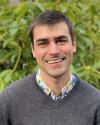 Joe Concannon Andrew Feld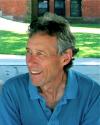 Richard Kenney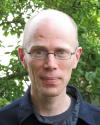 Charles LaPorte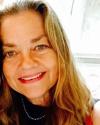 Frances McCue Leila Kate Norako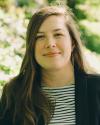 D.E. Roberts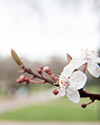 Nancy Sisko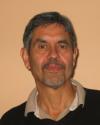 Henry Staten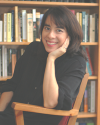 Pimone TriplettLatest news. - Jack Chelgren’s poem “Laocoön” (January 21, 2016)
- Following English Alumni: Martha Silano (May 15, 2011)
More content tagged with this term:- Publications
- Dissertations
- Graduate Students
- Facebook
- Instagram
- Twitter
- Newsletter
Department of English Recent PhD DissertationsTerekhov, Jessica (September 2022) -- "On Wit in Relation to Self-Division" Selinger, Liora (September 2022) -- "Romanticism, Childhood, and the Poetics of Explanation" Lockhart, Isabel (September 2022) -- "Storytelling and the Subsurface: Indigenous Fiction, Extraction, and the Energetic Present" Ashe, Nathan (April 2022) – "Narrative Energy: Physics and the Scientific Real in Victorian Literature” Bartley, Scott H. (April 2022) – “Watch it closely: The Poetry and Poetics of Aesthetic Focus in The New Criticism and Middle Generation” Mctar, Ali (November 2021) – “Fallen Father: John Milton, Antinomianism, and the Case Against Adam” Chow, Janet (September 2021) – “Securing the Crisis: Race and the Poetics of Risk” Thorpe, Katherine (September 2021) – “Protean Figures: Personified Abstractions from Milton’s Allegory to Wordsworth’s Psychology of the Poet” Minnen, Jennifer (September 2021) – “The Second Science: Feminist Natural Inquiry in Nineteenth-Century British Literature” Starkowski, Kristen (September 2021) – “Doorstep Moments: Close Encounters with Minor Characters in the Victorian Novel” Rickard, Matthew (September 2021) – “Probability: A Literary History, 1479-1700” Crandell, Catie (September 2021) – “Inkblot Mirrors: On the Metareferential Mode and 19th Century British Literature” Clayton, J.Thomas (September 2021) – “The Reformation of Indifference: Adiaphora, Toleration, and English Literature in the Seventeenth Century” Goldberg, Reuven L. (May 2021) – “I Changed My Sex! Pedagogy and the Trans Narrative” Soong, Jennifer (May 2021) – “Poetic Forgetting” Edmonds, Brittney M. (April 2021) – “Who’s Laughing Now? Black Affective Play and Formalist Innovation in Twenty-First Century black Literary Satire” Azariah-Kribbs, Colin (April 2021) – “Mere Curiosity: Knowledge, Desire, and Peril in the British and Irish Gothic Novel, 1796-1820” Pope, Stephanie (January 2021) – “Rethinking Renaissance Symbolism: Material Culture, Visual Signs, and Failure in Early Modern Literature, 1587-1644” Kumar, Matthew (September 2020) – “The Poetics of Space and Sensation in Scotland and Kenya” Bain, Kimberly (September 2020) – “On Black Breath” Eisenberg, Mollie (September 2020) – “The Case of the Self-Conscious Detective Novel: Modernism, Metafiction, and the Terms of Literary Value” Hori, Julia M. (September 2020) – “Restoring Empire: British Imperial Nostalgia, Colonial Space, and Violence since WWII” Reade, Orlando (June 2020) – “Being a Lover of the World: Lyric Poetry and Political Disaffection after the English Civil War” Mahoney, Cate (June 2020) – “Go on Your Nerve: Confidence in American Poetry, 1860-1960” Ritger, Matthew (April 2020) – “Objects of Correction: Literature and the Birth of Modern Punishment” VanSant, Cameron (April 2020) – “Novel Subjects: Nineteenth-Century Fiction and the Transformation of British Subjecthood” Lennington, David (November 2019) – “Anglo-Saxon and Arabic Identity in the Early Middle Ages” Marraccini, Miranda (September 2019) – “Feminist Types: Reading the Victoria Press” Harlow, Lucy (June 2019) – “The Discomposed Mind” Williamson, Andrew (June 2019) – “Nothing to Say: Silence in Modernist American Poetry” Adair, Carl (April 2019) – “Faithful Readings: Religion, Hermeneutics, and the Habits of Criticism” Rogers, Hope (April 2019) – “Good Girls: Female Agency and Convention in the Nineteenth-Century British Novel” Green, Elspeth (January 2019) – “Popular Science and Modernist Poetry” Braun, Daniel (January 2019) – Kinds of Wrong: The Liberalization of Modern Poetry 1910-1960” Rosen, Rebecca (November 2018) – “Making the body Speak: Anatomy, Autopsy and Testimony in Early America, 1639-1790” Blank, Daniel (November 2018) – Shakespeare and the Spectacle of University Drama” Case, Sarah (September 2018) – Increase of Issue: Poetry and Succession in Elizabethan England” Kucik, Emanuela (June 2018) – “Black Genocides and the Visibility Paradox in Post-Holocaust African American and African Literature” Quinn, Megan (June 2018) – “The Sensation of Language: Jane Austen, William Wordsworth, Mary Shelley” McCarthy, Jesse D. (June 2018) – “The Blue Period: Black Writing in the Early Cold War, 1945-1965 Johnson, Colette E. (June 2018) – “The Foibles of Play: Three Case Studies on Play in the Interwar Years” Gingrich, Brian P. (June 2018) – “The Pace of Modern Fiction: A History of Narrative Movement in Modernity” Marcus, Sara R. (June 2018) – “Political Disappointment: A Partial History of a Feeling” Parry, Rosalind A. (April 2018) – “Remaking Nineteenth-Century Novels for the Twentieth Century” Gibbons, Zoe (January 2018) – “From Time to Time: Narratives of Temporality in Early Modern England, 1610-1670” Padilla, Javier (September 2017) – “Modernist Poetry and the Poetics of Temporality: Between Modernity and Coloniality” Alvarado, Carolina (June 2017) – "Pouring Eastward: Editing American Regionalism, 1890-1940" Gunaratne, Anjuli (May 2017) – "Tragic Resistance: Decolonization and Disappearance in Postcolonial Literature" Glover, Eric (May 2017) – "By and About: An Antiracist History of the Musicals and the Antimusicals of Langston Hughes and Zora Neale Hurston" Tuckman, Melissa (April 2017) – "Unnatural Feelings in Nineteenth-Century Poetry" Eggan, Taylor (April 2017) – "The Ecological Uncanny: Estranging Literary Landscapes in Twentieth-Century Narrative Fiction" Calver, Harriet (March 2017) – "Modern Fiction and Its Phantoms" Gaubinger, Rachel (December 2016) – "Between Siblings: Form and Family in the Modern Novel" Swartz, Kelly (December 2016) – "Maxims and the Mind: Sententiousness from Seventeenth-Century Science to the Eighteenth-Century Novel" Robles, Francisco (June 2016) – “Migrant Modalities: Radical Democracy and Intersectional Praxis in American Literatures, 1923-1976” Johnson, Daniel (June 2016) – “Visible Plots, Invisible Realms” Bennett, Joshua (June 2016) – “Being Property Once Myself: In Pursuit of the Animal in 20th Century African American Literature” Scranton, Roy (January 2016) – “The Trauma Hero and the Lost War: World War II, American Literature, and the Politics of Trauma, 1945-1975 Jacob, Priyanka (November 2015) – “Things That Linger: Secrets, Containers and Hoards in the Victorian Novel” Evans, William (November 2015) – “The Fiction of Law in Shakespeare and Spenser” Vasiliauskas, Emily (November 2015) – “Dead Letters: The Afterlife Before Religion” Walker, Daniel (June 2015) – “Sociable Uncertainties: Literature and the Ethics of Indeterminacy in Eighteenth-Century Britain” Reilly, Ariana (June 2015) – “Leave-Takings: Anti-Self-Consciousness and the Escapist Ends of the Victorian Marriage Plot” Lerner, Ross (June 2015) – "Framing Fanaticism: Religion, Violence, and the Reformation Literature of Self-Annihilation” Harrison, Matthew (June 2015) – "Tear Him for His Bad Verses: Poetic Value and Literary History in Early Modern England” Krumholtz, Matthew (June 2015) – “Talking Points: American Dialogue in the Twentieth Century” Dauber, Maayan (March 2015) – "The Pathos of Modernism: Henry James, Virginia Woolf, and Gertrude Stein (with a coda on J.M. Coetzee)” Hostetter, Lyra (March 2015) – “Novel Errantry: An Annotated Edition of Horatio, of Holstein (1800)” Sanford, Beatrice (January 2015) – “Love’s Perception: Nineteenth-Century Aesthetics of Attachment” Chong, Kenneth (January 2015) – “Potential Theologies: Scholasticism and Middle English Literature” Worsley, Amelia (September 2014) – “The Poetry of Loneliness from Romance to Romanticism” Hurtado, Jules (June 2014) – “The Pornographer at the Crossroads: Sex, Realism and Experiment in the Contemporary English Novel” Rutherford, James (June 2014) – "Irrational Actors: Literature and Logic in Early Modern England” Wilde, Lisa (June 2014) – “English Numeracy and the Writing of New Worlds, 1543-1622” Hyde, Emily (November 2013) – “A Way of Seeing: Modernism, Illustration, and Postcolonial Literature” Ortiz, Ivan (September 2013) – “Romanticism and the Aesthetics of Modern Transport” Aronowicz, Yaron (September 2013) – “Fascinated Moderns: The Attentions of Modern Fiction” Wythoff, Grant (September 2013) – “Gadgetry: New Media and the Fictional Imagination” Ramachandran, Anitha (September 2013) – "Recovering Global Women’s Travel Writings from the Modern Period: An Inquiry Into Genre and Narrative Agency” Reuland, John (April 2013) – “The Self Unenclosed: A New Literary History of Pragmatism, 1890-1940” Wasserman, Sarah (January 2013) – “Material Losses: Urban Ephemera in Contemporary American Literature and Culture” Kastner, Tal (November 2012) – "The Boilerplate of Everything and the Ideal of Agreement in American Law and Literature" Labella, John (October 2012) – "Lyric Hemisphere: Latin America in United States Poetry, 1927-1981" Kindley, Evan (September 2012) – "Critics and Connoisseurs: Poet-Critics and the Administration of Modernism" Smith, Ellen (September 2012) – "Writing Native: The Aboriginal in Australian Cultural Nationalism 1927-1945" Werlin, Julianne (September 2012) – "The Impossible Probable: Modeling Utopia in Early Modern England" Posmentier, Sonya (May 2012) – "Cultivation and Catastrophe: Forms of Nature in Twentieth-Century Poetry of the Black Diaspora" Alfano, Veronica (September 2011) – “The Lyric in Victorian Memory” Foltz, Jonathan (September 2011) – “Modernism and the Narrative Cultures of Film” Coghlan, J. Michelle (September 2011) – “Revolution’s Afterlife; The Paris Commune in American Cultural Memory, 1871-1933” Christoff, Alicia (September 2011) – “Novel Feeling” Shin, Jacqueline (August 2011) – “Picturing Repose: Between the Acts of British Modernism” Ebrahim, Parween (August 2011) – “Outcasts and Inheritors: The Ishmael Ethos in American Culture, 1776-1917” Reckson, Lindsay (August 2011) – “Realist Ecstasy: Enthusiasm in American Literature 1886 - 1938" Londe, Gregory (June 2011) – “Enduring Modernism: Forms of Surviving Location in the 20th Century Long Poem” Brown, Adrienne (June 2011) – “Reading Between the Skylines: The Skyscraper in American Modernism” Russell, David (June 2011) – “A Literary History of Tact: Sociability, Aesthetic Liberalism and the Essay Form in Nineteenth-Century Britain” Hostetter, Aaron (December 2010) – "The Politics of Eating and Cooking in Medieval English Romance" Moshenska, Joseph (November 2010) – " 'Feeling Pleasures': The Sense of Touch in Renaissance England" Walker, Casey (September 2010) – "The City Inside: Intimacy and Urbanity in Henry James, Marcel Proust and Virginia Woolf" Rackin, Ethel (August 2010) – "Ornamentation and Essence in Modernist Poetry" Noble, Mary (August 2010) – "Primitive Marriage: Anthropology and Nineteenth-Century Fiction" Fox, Renee (August 2010) – "Necromantic Victorians: Reanimation, History and the Politics of Literary Innovation, 1868-1903" Hopper, Briallen (June 2010) – “Feeling Right in American Reform Culture” Lee, Wendy (June 2010) -- "Failures of Feeling in the British Novel from Richardson to Eliot" Moyer, James (March 2010) – "The Passion of Abolitionism: How Slave Martyrdom Obscures Slave Labor” Forbes, Erin (September 2009) – “Genius of Deep Crime: Literature, Enslavement and the American Criminal” Crawforth, Hannah (September 2009) – “The Politics and Poetics of Etymology in Early Modern Literature” Elliott, Danielle (April 2009) – "Sea of Bones: The Middle Passage in Contemporary Poetry of the Black Atlantic” Yu, Wesley (April 2009) – “Romance Logic: The Argument of Vernacular Verse in the Scholastic Middle Ages” Cervantes, Gabriel (April 2009) – "Genres of Correction: Anglophone Literature and the Colonial Turn in Penal Law 1722-1804” Rosinberg, Erwin (January 2009) – "A Further Conjunction: The Couple and Its Worlds in Modern British Fiction” Walsh, Keri (January 2009) – "Antigone in Modernism: Classicism, Feminism, and Theatres of Protest” Heald, Abigail (January 2009) – “Tears for Dido: A Renaissance Poetics of Feeling” Bellin, Roger (January 2009) – "Argument: The American Transcendentalists and Disputatious Reason” Ellis, Nadia (November 2008) – "Colonial Affections: Formulations of Intimacy Between England and the Caribbean, 1930-1963” Baskin, Jason (November 2008) – “Embodying Experience: Romanticism and Social Life in the Twentieth Century” Barrett, Jennifer-Kate (September 2008) – “ ‘So Written to Aftertimes’: Renaissance England’s Poetics of Futurity” Moss, Daniel (September 2008) – “Renaissance Ovids: The Metamorphosis of Allusion in Late Elizabethan England” Rainof, Rebecca (September 2008) – “Purgatory and Fictions of Maturity: From Newman to Woolf” Darznik, Jasmin (November 2007) – “Writing Outside the Veil: Literature by Women of the Iranian Diaspora” Bugg, John (September 2007) – “Gagging Acts: The Trials of British Romanticism” Matson, John (September 2007) – “Marking Twain: Mechanized Composition and Medial Subjectivity in the Twain Era” Neel, Alexandra (September 2007) – “The Writing of Ice: The Literature and Photography of Polar Regions” Smith-Browne, Stephanie (September 2007) – “Gothic and the Pacific Voyage: Patriotism, Romance and Savagery in South Seas Travels and the Utopia of the Terra Australis” Bystrom, Kerry (June 2007) – “Orphans and Origins: Family, Memory, and Nation in Argentina and South Africa” Ards, Angela (June 2007) – “Affirmative Acts: Political Piety in African American Women’s Contemporary Autobiography” Cragwall, Jasper (June 2007) – “Lake Methodism” Ball, David (June 2007) – “False Starts: The Rhetoric of Failure and the Making of American Modernism, 1850-1950” Ramdass, Harold (June 2007) – “Miswriting Tragedy: Genealogy, History and Orthography in the Canterbury Tales, Fragment I” Lilley, James (June 2007) – “Common Things: Transatlantic Romance and the Aesthetics of Belonging, 1764-1840” Noble, Mary (March 2007) – “Primitive Marriage: Anthropology and Nineteenth-Century Fiction” Passannante, Gerard (January 2007) – “The Lucretian Renaissance: Ancient Poetry and Humanism in an Age of Science” Tessone, Natasha (November 2006) – “The Fiction of Inheritance: Familial, Cultural, and National Legacies in the Irish and Scottish Novel” Horrocks, Ingrid (September 2006) – “Reluctant Wanderers, Mobile Feelings: Moving Figures in Eighteenth-Century Literature” Bender, Abby (June 2006) – “Out of Egypt and into bondage: Exodus in the Irish National Imagination” Johnson, Hannah (June 2006) – “The Medieval Limit: Historiography, Ethics, Culture” Horowitz, Evan (January 2006) – “The Writing of Modern Life” White, Gillian (November 2005) – “ ‘We Do Not Say Ourselves Like That in Poems’: The Poetics of Contingency in Wallace Stevens and Elizabeth Bishop Baudot, Laura (September 2005) – “Looking at Nothing: Literary Vacuity in the Long Eighteenth Century” Hicks, Kevin (September 2005) – “Acts of Recovery: American Antebellum Fictions” Stern, Kimberly (September 2005) – “The Victorian Sibyl: Women Reviewers and the Reinvention of Critical Tradition” Nardi, Steven (May 2005) – “Automatic Aesthetics: Race, Technology, and Poetics in the Harlem Renaissance and American New Poetry” Sayeau, Michael (May 2005) – “Everyday: Literature, Modernity, and Time” Cooper, Lawrence (April 2005) – “Gothic Realities: The Emergence of Cultural Forms Through Representations of the Unreal” Betjemann, Peter (November 2004) – “Talking Shop: Craft and Design in Hawthorne, James, and Wharton” Forbes, Aileen (November 2004) – “Passion Play: Theaters of Romantic Emotion” Keeley, Howard (November 2004) – “Beyond Big House and Cabin: Dwelling Politically in Modern Irish Literature” Machlan, Elizabeth (November 2004) – “Panic Rooms: Architecture and Anxiety in New York Stories from 1900 to 9/11” McDowell, Demetrius (November 2004) – “Hawthorne, James, and the Pressures of the Literary Marketplace” Waldron, Jennifer (November 2004) – “Eloquence of the Body: Aesthetics, Theology, and English Renaissance Theater”  | 


















































































IMAGES
VIDEO
COMMENTS
Find details about every creative writing competition—including poetry contests, short story competitions, essay contests, awards for novels, grants for translators, and more—that we've published in the Grants & Awards section of Poets & Writers Magazine during the past year. We carefully review the practices and policies of each contest before including it in the Writing Contests ...
Genres offered: "Poetry, fiction, non-fiction, memoir and children's literature" 3.0 Minimum GPA Required "PhD Applicants: A master's degree in English or a closely related field is required for admission." "GRE scores are accepted, but not required" [03/01/2022] Funding for some students, not others (Not funded by our definition). Ohio
USC Dornsife PhD in Creative Writing & Literature. IN ADDITION TO COURSEWORK, students have the opportunity to participate in Ph.D. student-run projects such as The Loudest Voice, a reading series, and Gold Line Press, a publisher of fiction, nonfiction, and poetry chapbooks.. Though known for its competitive sports teams, USC also organizes an array of stimulating events throughout the year ...
In addition to poetry and fiction, we offer workshops and literature courses in areas such as nonfiction, travel writing, oral literature and narratology. Our PhD is a theoretical doctorate: an experience that builds creative thinking alongside critical reading and research. Writers go on to publish novels, poetry collections and critical ...
The final stage of the program is the submission of a creative dissertation that makes an original, substantial and publishable contribution to creative literature: a book of poems, a novel, a collection of short stories. Foreign Language. PhD students are required to demonstrate proficiency in at least one foreign language.
PhD in Creative Writing students are taught through one-to-one sessions with an appointed supervisor in their chosen specialism (fiction, creative non-fiction, or poetry) as well as through quarterly thesis workshops. They are also appointed a second supervisor whose role is to offer an additional perspective on the work being produced.
The PhD in English Literature with Creative Dissertation at the University of Georgia is for writers who wish to advance their expertise and sophistication as scholars. Our students are accomplished poets, fiction writers, essayists, translators, and interdisciplinary artists who are ready to move beyond the studio focus of the MFA to a more intensive program of literary study.
The Poetry concentration at Columbia is one of the strongest and most rigorous in the country. The program's focus is, always, on students' creative work, but we also emphasize an in-depth study of poetry and poetics unlike any other curriculum offered elsewhere. In a given semester, poetry students participate in a hands-on, intense, and ...
Find details about every creative writing competition—including poetry contests, short story competitions, essay contests, awards for novels, grants for translators, and more—that we've published in the Grants & Awards section of Poets & Writers Magazine during the past year. We carefully review the practices and policies of each contest before including it in the Writing Contests ...
A UNESCO World City of Literature, Edinburgh is a remarkable place to study, write, publish, discuss and perform prose, poetry and drama. Take a PhD with us and you will be based in the School of Literatures, Languages and Cultures (LLC) in the historic centre of this world-leading festival city.
Josh Russell. [email protected]. The Ph.D. program in English, Concentration in Creative Writing, is one of the top 15 in the U.S., as ranked by Poets & Writers. The program offers graduate students the opportunity to work closely with our award-winning faculty while living and writing in Atlanta, an international city with a vibrant literary culture.
Program Overview. The PhD in Creative Writing and Literature is a four-year course of study. Following two years of course work that includes workshop, forms classes, pedagogical training, and literature, students take exams in two areas, one that examines texts through the lens of craft and another that examines them through the lens of ...
Study here. Creative writing and practice-based PhD. The Department of English supports a significant body of postgraduate students developing Practice-based PhDs, in which a component part of the research involves producing a body of creative work. We have students developing novels, poetry collections, plays and creative work involving ...
Bio. xochi-maría ramos-lara (she/they) is a doctoral student in english and comparative literature. her main research interest focuses on the (lacanian) subjectivity of gay latinx poets as they wrote during the american aids epidemic of the 80s and 90s, taking into account the presence of the hiv virus itself as an important character. besides ...
The university also hosts the Poetry and Poetics Workshop, a working colloquium for graduate students, scholars, and poets studying poetry both at the university and beyond. Additionally, the Poetics Program has long-standing ties to our graduate student-run literary journal, The Chicago Review, one of the nation's premier literary journals.
The Program in Poetry and Poetics brings together a diverse community of literary scholars, poets, and translators working on poetry and poetics across a spectrum of regions, historical periods, and theoretical approaches at the University of Chicago. The faculty includes experts on classical Chinese poetry, the French avant-garde, the modern reception of archaic Greek poetry, and contemporary ...
Poetry and Poetics. Drama, Theatre, and Performance Studies. Ancient and Medieval Myth and Epic. Gender and Sexuality Studies. Science and Environmental Studies. Law and Humanities. Philosophy, Aesthetics, History of Ideas, and Sociology of Knowledge. Europe.
Overview. You will produce a volume of poetry as well as a piece of scholarly research of 30-40,000 words. Given its emphasis on poetic practice as research into the possibilities and potential for contemporary poetry, the programme integrates with the aims and objectives of the Centre for Modern Poetry allowing for joint supervision between ...
Find details about every creative writing competition—including poetry contests, short story competitions, essay contests, awards for novels, grants for translators, and more—that we've published in the Grants & Awards section of Poets & Writers Magazine during the past year. We carefully review the practices and policies of each contest before including it in the Writing Contests ...
Have the attention of great writers and scholars on Warwick's PhD in Literary Practice. Designed by Warwick Writing Programme, ranked 1st in REF 2014, the 'national centre of excellence for creative writing'. Complete a novel, short story, poetry or work of non-fiction with specialist supervision.
Creative and Critical Writing. Cardiff University Cardiff School of Welsh. This PhD pathway offers students the opportunity to produce an original piece or collection of creative work as well as a thorough analysis of the work. Read more. Funded PhD Programme (Students Worldwide) Arts Research Programme. More Details.
Department of English University of Washington A101 Padelford Hall Box 354330 Seattle, WA 98195-4330
Recent PhD Dissertations. Terekhov, Jessica (September 2022) -- "On Wit in Relation to Self-Division". Selinger, Liora (September 2022) -- "Romanticism, Childhood, and the Poetics of Explanation". Lockhart, Isabel (September 2022) -- "Storytelling and the Subsurface: Indigenous Fiction, Extraction, and the Energetic Present".